Blog » How to Guides » Life Coach Certifications: The Definitive Guide
LIFE COACH CERTIFICATIONS
The Definitive Guide
Are life coach certifications necessary to kickstart your journey as a life coach?
Do you really need one? And if yes, which one should you pick?
What are the short-term benefits of getting a life coach certification? Are there any drawbacks to getting certified?

If you’ve asked yourself any of these questions about life coach certifications, this article is for you!
Here, I’ve demystified and simplified all the questions surrounding life coach certifications.
By the end, I’m sure you’ll discover which certification program fits your unique requirements just right.
Without further ado, let’s get started!
Don’t have time to read the whole guide right now?
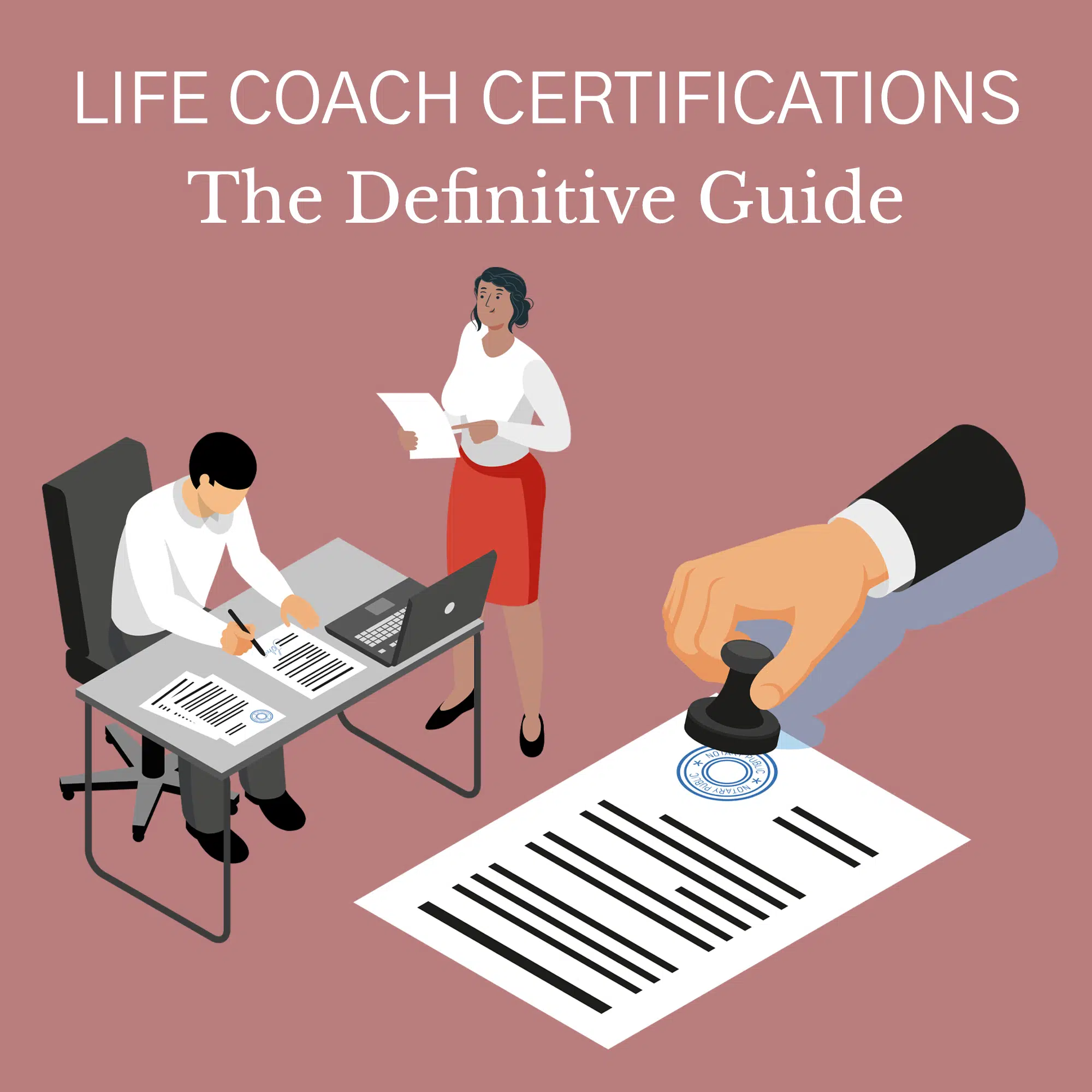
No worries. Let me send you a copy so you can read it when it’s convenient for you. Just let me know where to send it (takes 5 seconds)
Yes! Give me my PDFContents
Chapter 1:
The Fundamentals of Life Coaching
Launching your own online life coaching business hasn’t been easier than it is today.
To succeed as a life coach you need a clear sense of purpose, the drive to help people, and the right training. However, that’s not all. To make it big as a coach, you’ll also need to learn how to develop an entrepreneurial mindset.
In this article, we’re diving deep into the world of life coach certifications. The goal is to give you all the information you need to make the right decision based on your goals.
No doubt, we start coaching because we’re passionate about making a difference, but without the right training and education, we may not be able to bring about the difference that we desire.
Before we move on to decoding the bigger questions, let’s take a look at the fundamentals of life coaching and certifications.
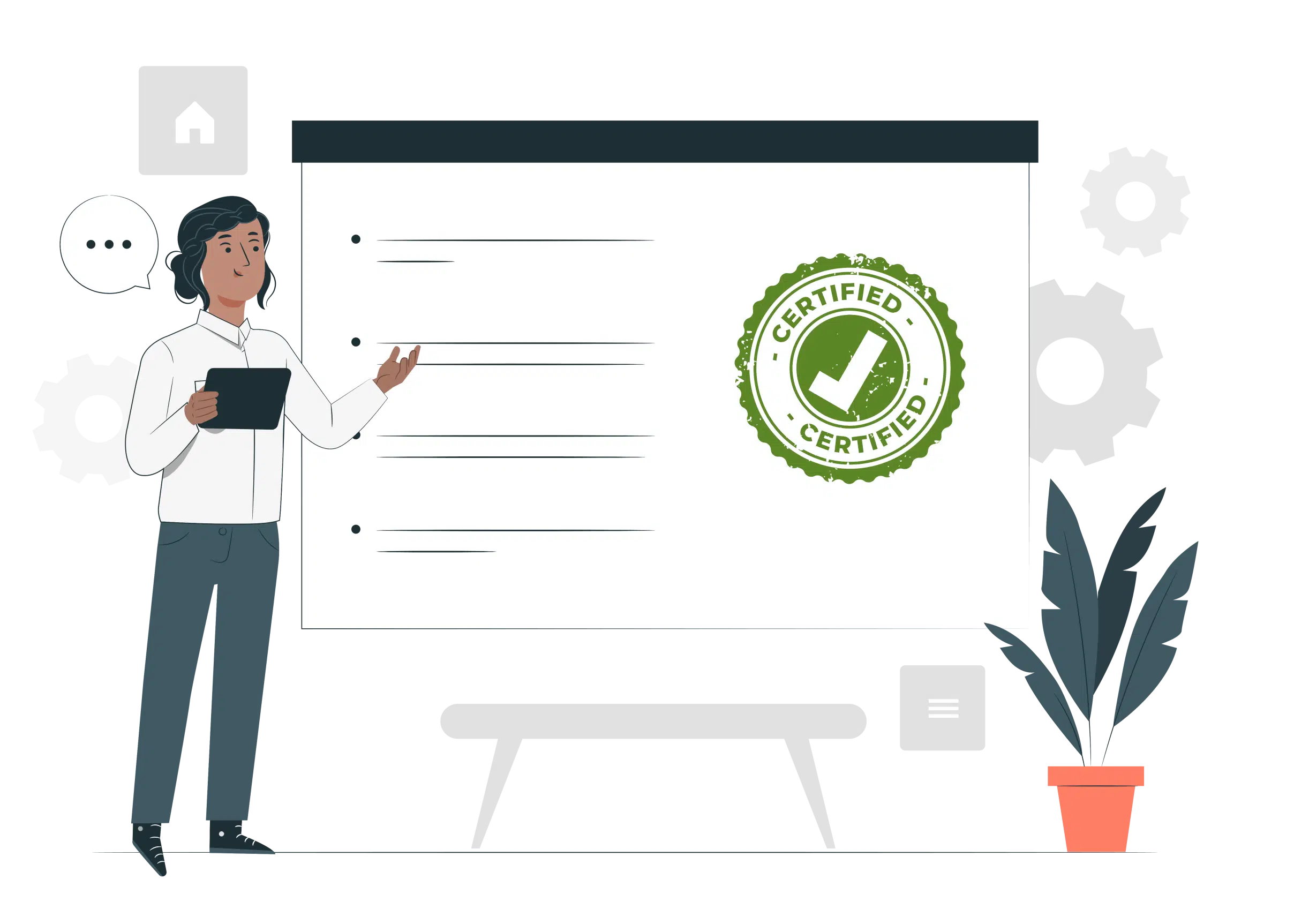
What is Life Coaching?
Life Coaching refers to the process of addressing specific goals, ambitions, failures, successes, motivation, and transitions in various parts of a client’s life like personal goals, relationships, business, spirituality, health, fitness, etc. A life coach first examines the present reality of each part of a client’s life, then works to identify obstacles or challenges, and finally helps clients choose a course of action that improves their life.
Why Do People Need Life Coaching?
While a life coach may sound like something most people don’t need, just hear me out for a moment.
People have been seeking guidance from friends, colleagues, or even family members for years! Wouldn’t it be better if a trusted professional could guide them instead?
Just think about it. Unlike family members, siblings or near and dear ones, a life coach isn’t biased. They’re less likely to be clouded by their own judgements or emotions.
And, of course, they’re going to have a more objective input and they’ll probably be able to offer their clients a new perspective while they’re at it.
In addition, a life coach is equipped with tools, techniques, and experience to effectively help their clients get closer to the end goals they are working towards.
What Life Coaching is NOT
Life coaching is not a one-stop solution to every small and big problem one may have in life. Neither is it a quick fix for deep-rooted psychological or behavioural problems.
If you’re looking to explore a career as a life coach to transform people’s lives overnight – abort mission immediately.
However, if you’re someone who enjoys helping or supporting others as they try to improve their lives, life coaching may just be the right career for you!
Are life coaches the same as therapists? Not at all. Here’s how they differ.
Types of Life Coaches
Life coaching isn’t a ‘one size fits all’ industry. There are many different specializations or niches that coaches fall into, and these usually depend on their unique strengths.
Let’s take a look at some of the most common types of life coaches –
- Career Coaching
Career coaches help students, young graduates, professionals etc. pick a career that’s best for them.
As compared to any other time in history, students have a wide variety of professions and career paths available to them. Be it a lawyer, actor, artist, archaeologist or plumber – choosing a career path is more than just about your interest, skills and talents.
This is where a career coach steps in. A skilled career coach can help their client choose a career that aligns with their short-term and long-term goals.
Apart from helping students pick the right career, these types of coaches can also aid those looking to transition from one industry to another, by helping and supporting them.
- Relationship Coaching
As the name suggests, relationship coaches help their clients work on building, repairing and maintaining better personal and professional relationships.
Before I dove head-first into building coachfoundation.com, I specialized in relationship coaching at ‘SaiFai Dating’, where I helped overcome their fear and groomed them to enable them to meet their perfect match.
Relationship coaching isn’t just about dating. The same core principles can be applied towards building stronger relationships even outside of the dating pool.
If you’re someone who has a keen eye for coaching people and helping them strengthen or improve relationships, this may be the right career path for you!
- Business Coaching
Business owners looking for guidance on kick-starting their own business, expanding their existing business, diversifying into a new industry, simply boosting profits, or improving your company culture all need a business coach.
Business coaches assist owners, managers, supervisors and other employees to understand their day-to-day responsibilities and aim at streamlining the process to make it more effective and productive.
A good business coach has the ability to understand the heart of a business operation and suggest changes based on the goals, mission and vision of the organization.
Not only that, business coaches can be an objective third party and can offer guidance on creating or modifying KPIs (Key Performance Indicators) to achieve short-term and long-term organizational and team goals.
- Sales Coach
Often confused with business coaching, sales coaching focuses on boosting the performance of an organization’s sales department. Most sales coaches work with large organizations to teach their sales teams the tricks of the trade, but you may also find yourself working with individuals who want to improve their performance.
To understand exactly why sales coaches (or great ones, at least) are almost like celebrities or industry gurus, you have to understand that sales forms an important part of our daily communication.
Be it a simple roof repair business at the corner of your neighbourhood, or a multinational conglomerate that’s taking over the world – sales is the lifeblood of every operation.
Keeping this fact in mind, it’s no surprise that sales coaching and training is a thriving industry.
- Personal Development Coaching
Have you privately wondered whether you’d be able to achieve much more if there was someone who was there to support you? If yes, you might want to look into hiring (or becoming) a personal coach.
Personal coaching used to be a hush-hush affair a few decades ago, but there’s no shortage of personal development coaches out there today. And, there’s always demand for an excellent coach who can deliver results and make a real difference.
Personal development coaching is all about helping your clients identify life goals in areas like career, relationships, discipline etc.
In a way, all coaches that help their clients become better versions of themselves are personal development coaches.
But the key difference is that these coaches often focus on helping you feel “unstuck” in life. They help you pick up the pace, and enable you to reach your goals in a streamlined manner.
- Spiritual Coaching
More than ever before, people are feeling the need to reconnect with themselves and the collective consciousness.
Spiritual coaches help such people explore connections deep within themselves and the Universe to connect with energies and understand the world in a deeper manner.
With a spiritual coach, clients get to access the benefits of a wide variety of healing tools and modalities to develop a positive mindset, move past internal blocks, stop self-sabotage, heal wounds from the past, and much more.
Unlike mentors, spiritual coaches aim at enabling their clients to develop self-trust and self-confidence, so as to continue growing spiritually in an individual capacity.
- Wellness or Mindfulness Coaching
Wellness coaches work with clients to help them achieve self-determined, tangible health and wellness goals. By empowering clients to develop stronger discipline, mental fortitude and confidence, they aim at facilitating life-long change.
Whether you’re working on becoming less emotional during arguments, or you’re looking to become more assertive, a mindfulness or wellness coach can help you get there.
However much wealth you may have unless you’re healthy, you won’t be able to enjoy your life. This is probably why health coaches and the demand for their services are on the rise.
As human beings, we’re constantly trying to improve ourselves, and more often than not, we need support in this self-improvement endeavour.
Most importantly, health coaching is something that people who are trying to lose weight, get fitter, gain muscle mass, get back on track after an illness or even those who are trying to live with chronic illnesses need.
If you have a keen interest in making people live healthier, more fulfilling lives, you may be able to make a real difference as a health coach.
How to Determine if a Career in Life Coaching is Right for you?
Do you have what it takes to have a successful career in life coaching?
If you’re wondering whether you have what it takes to make it big as a life coach, answer these questions.
- Which unique skills of yours can help people the most?
Without beating around the bush too much, let’s come to the point. Do you think you have a set of unique skills that can help improve someone’s life? In my opinion, we all do.
Forget about the qualifications for the minute, we’ll come back to that later.
Whether it’s related to health, personality development or even sales; which of your skills are best suited to help others improve their lives? Can you help your friends stay motivated throughout a diet? Are you great at listening to someone going through a tough time?
If you answered yes to any of these questions, you’d make a great life coach!
- Are you committed to coaching as a professional path?
Let’s get real for a minute. Life coaching is a serious undertaking where your inputs and advice have a direct impact on another person’s life.
Just like you give it your all at your job, college or school, building a successful life coaching business also requires your 100%.
Irrespective of whether you choose to pursue it full-time or part-time, dedication makes all the difference! So, before you can determine if a career in life coaching is the right fit for you, consider whether you’re ready to take up coaching as a professional path.
- Do you have the skills, qualifications and/or certifications needed?
If your clients are paying you, they deserve a certain level of expertise and professional service.
Think about it. If you had to choose a therapist or chiropractor, you wouldn’t want one who had no certifications or credentials, right? The same principle applies even in the case of life coaching.
While life coaching certifications are a great way to show your client that your inputs are well-informed and from a trained perspective, you also need to have a multitude of soft skills and interpersonal abilities to give your clients their money’s worth.
- Are you ready to invest the time, money and efforts needed to make this a career?
Nothing that’s truly worth having comes easy.
To excel and become one of the best in the business, you will have to invest your time, money, efforts, and a lot more into your life coaching endeavours.
Even if you have responsibilities like a child, a full-time job, or even health-related challenges, a little planning and dedication can help you work around any challenges.
- Can you do justice to your clients by committing your time, energy, attention and concern for their wellbeing?
As you answer the previous question, consider whether you’re in the right emotional, mental and physical state to do justice to your clients. After all, life coaching is a huge responsibility.
Anything you choose to advise your clients on will have real-world consequences.
If you’re not in the right emotional or mental state to be an objective, impartial, and professional coach, work through your challenges to make sure you can give your 100% to your clients.
- Are you in the right frame of mind to coach, guide or support others?
Again, your mental well-being is crucial to ensuring that you can add value to those who seek your guidance.
If you feel like you aren’t at 100% peak performance, invest in a webinar, training course or certification to work through your limitations (real and perceived) to show up in a manner that benefits your clients and brings you satisfaction.
- Do you wish to pursue life coaching as a full-time or part time career?
This one is quite the no-brainer. Before you launch your life coaching business, it’s important to plan how you’ll take it ahead.
After considering where you’re at with respect to your professional abilities, personal life, mental state, and other goals, you’ll be in a better position to determine if you’d rather be a part-time coach, or if a full-time career is a right fit for you.
Chapter 2:
Why Do Life Coach Certifications Matter?
As you enter the world of life coaching, certifications are incredibly powerful resources that show potential clients that you offer value. It shows them that your expertise is backed by an accredited and reputed organization, and that you’re capable of helping them achieve their goals within a tried-and-tested framework.
It also helps in justifying your fees and ensuring that your clients feel like you’re delivering value.
Even if you plan on pursuing life coaching as a part-time vocation, a certification teaches you important techniques and modalities.

Upskilling: The Growing Trend
As per the recent survey, more life coaches around the world have invested in training and certifications during the pandemic.
While the demand for their services may have temporarily dipped, many professionals are choosing to upskill and prepare for the growing demand that has slowly, but surely come upon us.
So, to answer the question of whether life coaching certifications are all that important? Yes, they are. If you’re seriously looking to kickstart a fulfilling career in life coaching, certifications are incredibly important.
Can You Start Coaching Without a Life Coach Certification?
Can you kickstart your career as a life coach without a certification? Well, yes.
There are no official laws stating that life coaches must be certified by one government body or another. But that’s probably not going to be good enough for paying clients.
Needless to say, life coach certifications add a certain sense of reliability and trust to your claims, and help clients believe in your service.
Even if your clients aren’t sticklers for certifications, think about your own commitment for a second. Would you be comfortable going out there armed with only a basic understanding of what your clients need? Will you be able to justify your contribution without the certainty of a certification?
Without the right certification, it’s possible that you’ll do more harm than good.
Your advice, while springing from a good place, may lack the nuance and finesse that robust training can provide. This will only pull down your personal brand in the long run, and impact your business negatively.
Instead, investing in certifications, online webinars, and training that can help generate excellent returns, year after year.
Corporate Clients Require Certifications
If you’re looking to make a splash in the corporate sphere, going without a certification won’t take you very far.
A study that looked into the industry-standard found that coach practitioners as well as (corporate) managers and recruiters were expected to be certified (or hold an accredited certification) in order to be hired.
One of my clients recently shared her story about this.
She has extensive experience, success stories and testimonials for coaching small businesses.
But she found it really tough to close larger corporate clients. They often cite the lack of certification being the reason.
Yes, this is just one example and there are many coaches who do it successfully even without certifications.
But I am a strong believer in putting in the work to set yourself up for success.
Chapter 3:
The Cost and Value of Life Coach Certifications
When it comes to choosing the right life coach certification for yourself, cost is an important factor to consider.
I’m sure we all love a good bargain. But it’s important to make sure you’re getting your money’s worth from your investment. Additionally, to get the most bang for your buck, you’ll have to first evaluate what is valuable to you and your unique situation.
For example, if you have studied psychology before, you may do better with a certification that covers other important subjects like dealing with clients, profitability, and managing your business.
But how will you determine if a life coaching certification is worth investing in?
Here are a few questions to ask yourself to evaluate whether a course is right for you. I’ve also tried to cover some of the most common questions that arise while picking your program.

The Key Questions
- Do more expensive life coach certifications equal better education?
Like most things in life, more expensive doesn’t mean better.
Just because one program costs more than another, doesn’t automatically make it better.
To make sure you get the most value for your dollar, ensure you choose an accredited certification program that offers robust practical training, while covering subjects that you deem important for your success as a life coach.
- Does your certification cover all the necessary subjects?
When you evaluate cost efficiency of a certification program, it’s important to vet whether the course covers all the necessary subjects a budding life coach needs.
There’s no single thumb rule when it comes to determining this either, and I’d recommend you carefully consider what your needs are.
Let’s say you have a strong foundation in psychology, but your business management skills need training. Perhaps evidence-based, result-driven education is what you need, as opposed to a more hands-on approach.
Let’s look at the case of another client – Helen.
Helen had a background in Human Resource management, thanks to a career that spanned two decades, and ended with her as the head of HR for a Fortune 500 company.
For Helen, it was not too important to get a lot of face-time with clients, as she already had stellar people skills and communication abilities. However, she did want to understand how to monetize her life coaching business, and get accreditation as she wanted to grow her business.
Since she was very clear on what she expected to get out of her investment, it was easy for her to pick the right course.
Like her, when deciding whether a particular coaching certification offers value to you, consider all these areas. This will help you determine whether your choice will be cost-effective and worth the investment you make.
- Does your course offer the mentor coaching hours needed to obtain a certification?
There are plenty of life coaching certifications that talk the big talk, but don’t really do much in terms of offering you the right training. Investing in such a course would be disastrous, wouldn’t it?
To make sure you invest in the right life coaching certification, make sure your course offers you (at the very least) the minimum required mentor coaching hours.
Mentorship is an integral part of your training as a coach as it teaches you the fundamentals of coaching in a real-world scenario.
Whether you’re pursuing an accredited course, or trying to renew your credentials, these mentor coaching hours add tremendous value to your training.
As far as returns go, springing for a slightly more expensive course that includes mentorship hours is way more lucrative than a cheaper one without mentorship.
- Are there any additional costs and investments needed?
As is the case with any business venture, there are many other investments that equip you to succeed and bring in more clients.
While your coaching certification makes up a bulk of that cost, other training you may need to invest in includes sales training, soft skills, or even niche-specific technical courses.
If you’re looking at building a business from the ground up, there will be start-up costs attached. You may even have to invest in hiring an accountant or other professionals and consultants.
However, if you choose to get certified from an accredited body, and you have the right attitude, you could start recovering your investment cost in no time!
- What are the estimated costs of life coach certifications?
Honestly speaking, there’s no single word answer, or even ballpark estimates that will accurately answer this question.
The cost of life coach certifications depend on a wide variety of factors like duration, accreditation, syllabus and approval status.
However, most short-term courses cost under $ 1200, whereas long-term graduate programs (usually offered by universities) cost over $ 15000 in most cases.
You’ll find a bunch of other training modules and certification programs that fall in between these prices, and each of those have their own advantages and disadvantages. We will look at those in just a bit.
In most cases, accredited life coaching certifications from bodies like ICF, IAPPC or IAC cost more, as they offer more value in terms of a recognized organization.
The Downsides of Cheap and Free Certifications
When there is no shortage of cheap and even free life coaching courses, why shouldn’t you just pick one that looks like the best and go with it? Let’s take a look at the possible pros and cons of choosing such courses –
- Curriculum
When you pay barely anything for a certification course, you can’t really expect much in terms of curriculum.
While a cheap course may cover the basic modules and tenets of coaching like asking the right questions, developing listening skills, empathy etc. there’s no way these courses equip you with all you need to make it big as a life coach.
Insufficient knowledge, expertise and know-how will only act as hindrances when it comes to making an actual change in your client’s life.
- Accreditation
This is the big one! While there are no official governing bodies for life coaching certifications, an accredited program ensures standardization in terms of training.
An accredited program ensures you learn everything you need to have a successful career in life coaching. Since most accredited programs are constantly evaluated by third-parties, they are up-to-date, and in line with the needs of the current market.
They may be more expensive, but such certified programs go a long way in building credibility among your potential clients, and also teach you what you need to facilitate change.
- Support
Life coaches aren’t made in a day, they’re by-products of years of practice and experience.
An accredited program makes provisions for supporting your journey with mentorship, group discussions, peer reviews and even an alumni network.
With free or cheap courses (usually unaccredited) you don’t have this support network and you’ll be left fending for yourself.
While there’s nothing inherently wrong with flying solo, wouldn’t you rather have the support of people who understand your challenges and can help you in achieving your goals?
- Practical Experience
Life coaching, unlike many other paths, requires one-to-one communication with clients. You won’t just make it by reiterating or retro-fitting your bookish knowledge in real-world scenarios.
It’s just as important to practice your skills on real-life humans, and not just in a classroom setting.
Free or cheap certification programs don’t usually make provisions for such practical experiences where you can apply what you’ve learnt to a real-world situation.
Chapter 4:
Duration of Life Coach Certifications
Life coach certifications can range from just a few days to over a year.
Does it make sense to quickly get one, or is it better to go for a much longer one?
Due to such a wide range of durations, it gets confusing what to go for.
And that’s what I’m going to cover now.

The Ideal Duration
What’s the ideal duration of life coaching certifications?
Unfortunately there’s not a single answer to this question.
However, if I had to state an average, I’d say most robust coaching certification programs take anywhere between six to twelve months.
Any shorter than this duration, and you’d probably be missing out on important training that will shape your coaching career. And assuming your course speeds through and attempts to cover a lot of material in a short time, it doesn’t help either.
It’s important to take time to reflect on and practice what you’ve learnt.
For example, if you’ve received training on how to gather a client’s history before you get started, it will take you time to practice these techniques.
One of my clients, Robert, found that a longer course, while more labour-intensive and time-consuming, did pay off in the long run.
Robert decided to take the leap and started his own life coaching business in 2018, after completing a quick 2-month course that didn’t cost too much. In his own words, “I wanted to just get started as soon as possible!”
Unfortunately, at the end of 8 weeks, Robert felt woefully under-trained to start on his own. He didn’t get enough face-to-face time while he was learning, and it felt like starting as a professional when he felt unprepared wouldn’t be fair to his paying clients.
Robert decided to go ahead and pursue an ICF-certified course that would be spread over nine months, and offered plenty of practice sessions to polish his skills.
Ideally, you should practice with three to four volunteers (or your classmates), and read up about theories, techniques, and so on. Since your mind is a muscle, giving it some breathing space will ensure you learn well.
On the other hand, if your course is spread out over a duration that’s longer than a year, it may be counterproductive to your learning.
With that being said, I don’t want to discount your efforts if you’re pursuing a coaching certification in your free time, after a job, or due to other responsibilities.
But, if you’re able to take classes more frequently, spacing them out far apart may cause you to lose interest or you get too comfortable in the classroom setting. To make sure your passion doesn’t fizzle out, go all guns blazing towards your goals!
Pros and Cons of Short-term Programs
Let’s make one thing clear right off the bat – something is better than nothing. The same principle rings true even when it comes to life coaching certifications.
If you simply can’t afford to undertake a long-term life coaching certification program, it’s better to do a short-term one. There are a wide variety of weekend courses that can help you get certified in as little as a few weeks. Let’s look at the many pros and cons of short-term courses –
Duration: If you just don’t have the time (or the patience) to opt for a long-term certification, a short course can help you get your foot through the door.
However, be prepared to receive only a basic level of training, that you later can supplement with online resources.
Cost: If you’re simply too cash-strapped to go for a long-term course that’s out of your budget, it makes sense to opt for a shorter course. Then again, be prepared to receive your money’s worth in terms of returns.
Quality of Training: There are many short-term courses that tackle specific subjects within the realm of coaching, and can help you master certain weak areas or hone already-polished skills.
However, expecting a short-term course to be incredibly hands-on and in-depth will only disappoint you. Set clear expectations from your course and you won’t be disappointed.
Pros and Cons of Long-term Programs
Long-term programs are geared to those individuals who have decided to take the plunge into coaching, and are looking to equip themselves with the skills needed to succeed.
Most courses that can add value to your skillset are long-term, and more on the expensive side as compared to short-term courses. Let’s look at the many facets of long-term courses.
Quality of Training: Since they last longer, such courses often cover a wide array of subjects, techniques, tools and modules related to coaching.
This makes sure the student is prepared to go into the real world equipped not only with coaching skills, but also those related to running a business, prospecting, managing clients, building a personal brand and much more.
Cost: Needless to say, long term courses will leave your pockets lighter, but the cost is justified when you look at the returns on investment. We’ll talk about this below.
Accreditation: The value of your certification is proportional to its accreditation status, and this is a widely-accepted fact.
Whether you like it or not, when an industry association gives your certification its seal of approval, it goes to show that your training has value.
By putting in the time needed to gain this expertise, your accredited long-term program is a great way to jumpstart your life coaching endeavours.
Chapter 5:
Life Coach Certification Accreditations
Any confident coach can create their own coaching program and market it as the most amazing certification out there. Doesn’t make it true.
In the long run if you lack the credibility that comes from an accredited program, it may adversely affect your success. It’s not just my opinion, but a fact.
A recent study by ICF found that almost 83% of participants (clients) felt it was important that their coach had a certification or credential.
And nobody would blame them either. Everyone wants to feel like they’re getting professional guidance and service. An accreditation just helps show your clients that you’re worth it!
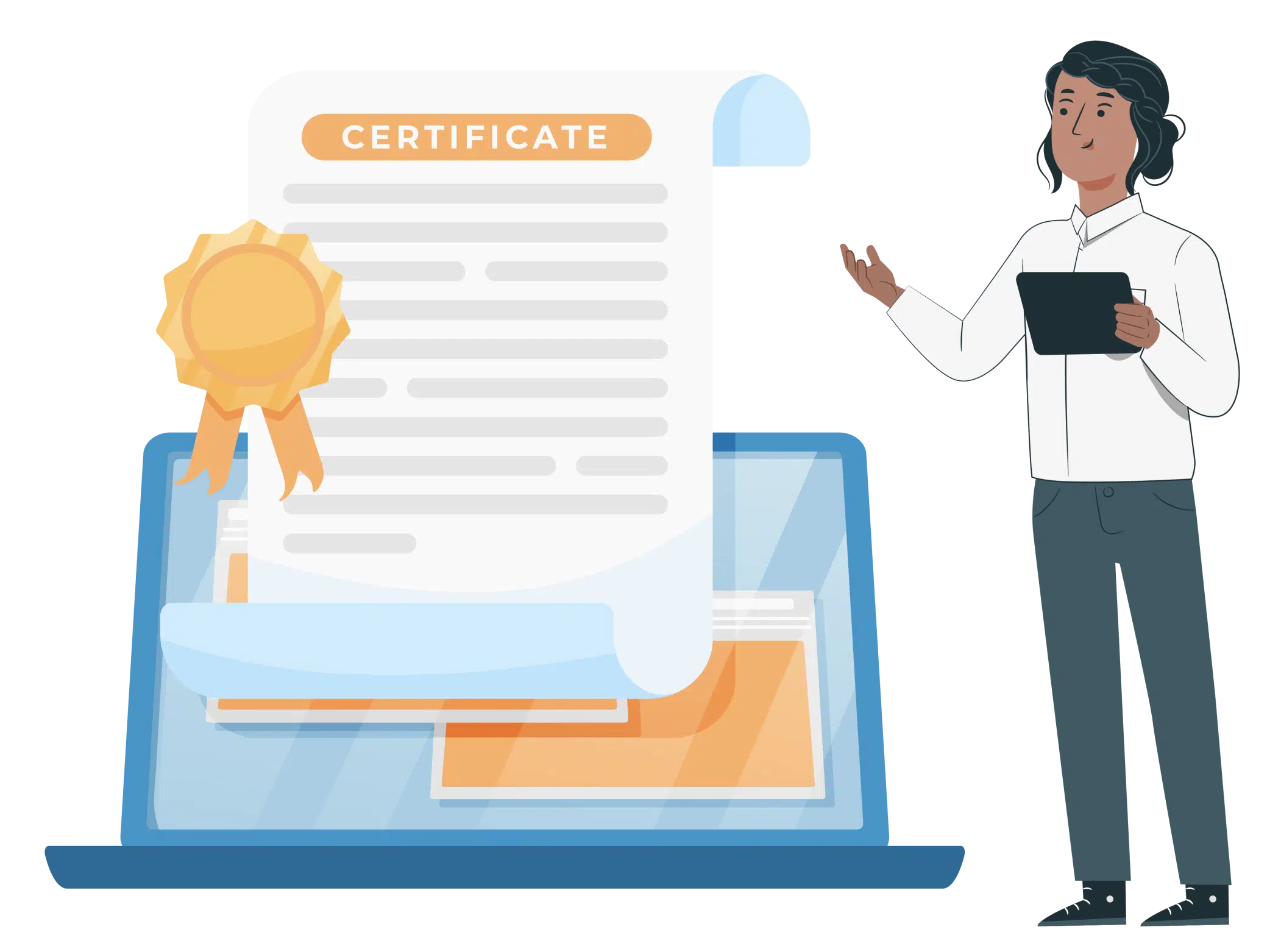
What do Accreditations Mean?
By now you’ve heard “ICF” at least a dozen times. So, let’s spill the beans on this sought-after accreditation!
The International Coach Federation (ICF) is one of the oldest, most reputed, and highly established organizations that assesses and evaluates life coaching courses.
The association is one of the most trusted when it comes to life coaching, but it doesn’t offer life coaching services or even certification programs of its own.
Their primary duty involves establishing a standardized system of certifying individuals as life coaches, and certifying coaching programs to conduct training for aspiring coaches.
As we’ve mentioned before, the credibility and reputation that an ICF accredited coaching certification adds to your portfolio is undeniable.
ACC, MCC, PCC: What Should You Choose?
The first level of life coach certification recognized by ICF, the Associate Certified Coach certificate (ACC) is the foundation course which aims at equipping budding coaches with the required skills.
This is followed by the Professional Certified Coach certificate (PCC), and finally the Master Certified Coach certificate (MCC).
Each of these levels evaluates students on similar parameters that are designed to train coaches on interpersonal, intrapersonal, psychological and communication skills they need.
Let’s take a look at what the ICF-accredited ACC, PCC and MCC courses cover in terms of skills and competencies.
Skills Covered by Accredited Courses
Ethical and professional guidelines.
As you work towards your certification your understanding and ability to apply ethical standards within your coaching framework will improve.
This goes a long way in building professionalism within your coaching style and communication.
Ability to establish a coaching agreement.
Setting the right expectations, communicating the parameters and guidelines of your coaching relationship are all integral to the process.
With an ICF-accredited course you will learn the what, why and how of effective communication, and become flexible, reliable and open as a coach.
Building trust and intimacy.
You’ll learn to bond with your clients, thereby facilitating an open and honest working relationship. You’ll learn how to provide support to your clients in a productive and conducive manner.
Questioning and Listening skills.
In a way, effective coaching will cease to exist if not for the ability to listen, and to ask the right questions.
With the right certification program, you’ll learn how to get your clients to open up, process their concerns, guide them towards solutions and much more.
Once you receive robust training on how to frame questions that elicit change, you’ll be on the fast track to transforming lives!
Planning and Goal-setting
Helping your clients in the long run is impossible unless you can help them become independent.
With an ICF-certified program, you’ll learn how to help clients apply what they’ve learned to real-world situations by assisting them in planning and goal-setting activities.
ACC, PCC and MCC at a glance
ACC, PCC and MCC courses under ICF are all awarded based on certain parameters that aim at preparing you for a coaching career. These parameters include –
Training hours – These refer to the hours spent learning about the techniques, theories and modalities related to life coaching. ACC requires at least 60 hours, PCC levels ask for 125, and MCC students have to log in around 220 hours.
Mentor hours – These refer to the time spent practicing with a mentor coach whose certification is greater than yours. Each level requires you to have 10 mentor hours with a mentor who has higher qualifications than you.
Logged coaching hours – To ensure you’re ready to take over real-life clients, your certification expects you to practice with a client during your training period. At the ACC level you need to log at least 100 hours. For PCC, you will need 500 hours, and MCC requires you to have 2500 logged coaching hours.
Coach Knowledge Assessment – The final step before your certification, this assessment aims at testing your practical, theoretical and applied knowledge when it comes to life coaching. Each level requires you to mandatorily sit for this assessment.
| ACC | PCC | MCC | |
| Training Hours | 60 | 125 | 220 |
| Mentor Hours | 10 (Mentor certification: ACC or higher) | 10 (Mentor certification: PCC or MCC) | 10 (Mentor certification: MCC) |
| Logged Coaching Hours | 100 | 500 | 2500 |
| Coach Knowledge Assessment | Required | Required | Required |
FAQs About ICF Courses
- What do training hours mean?
These hours refer to the time spent with your instructors learning about ICF-specific topics like the code of conduct, coaching techniques, theories etc.
- What do mentor hours mean?
These hours refer to the dialogue-based mentorship sessions needed to get your ICF credential. With a mentor who is usually a professional life coach, you have the opportunity to put what you’ve learnt in the classroom to practice.
- What do (logged) client-coaching hours mean?
A client-coaching hour is any 60 minute slot where you actually coach someone who has hired you for that specific reason. Even if you are paid a small sum, or receive compensation in the form of barter, it is still considered as a paid client-coaching hour.
- How to make sure my client coaching hours count?
For your client coaching hours to count, ACC students need at least 75 hours out of their 100 hours to be compensated by clients. Your log has to have at least 8 different clients.
PCC students need to have at least 450 hours paid out of their 500 client coaching hours. They need to have at least 25 different clients on their log.
For MCC candidates, the required coaching experience is a minimum of 2500 coaching hours, out of which at least 2200 should be paid for. These candidates need to have at least 35 different clients on their log.
- What is the Coach Knowledge Assessment?
Coach Knowledge Assessment (CKA) is considered the final exam for ICF certification courses. It tests students on ICF’s core competencies, code of ethics, and other subjects that are covered in the curriculum.
Other Accreditations to Choose From
What if you simply don’t want to get an ICF accreditation? Are there any other alternatives?
The major accreditations for coaching certifications are
- The International Association of Coaching (IAC)
- European Mentoring and Coaching Council (EMCC)
- Center for Credentialing & Education (CCE)
- The International Authority for Professional Coaching and Mentoring (IAPC&M)
- Association for Coaching
So what’s the difference between them?
Let’s take a look.
IAC
The International Association of Coaching (IAC) focuses more on the art of masterful coaching, as opposed to focusing on set numbers of coaching hours to demonstrate coaching capabilities. They also don’t put one style of coaching higher up than the other.
Their certification comprises a cognitive as well as demonstrative understanding and mastery of the art of coaching. They focus on teaching you stellar, actionable communication skills, as well as work on sensitizing you to work within a client-focused model.
To get started you need to take an online test, which if passed, leads you to a path of MPDP (Masteries Professional Development Plan) approval, and then on to the path of certification.
IAC certifies coaches based on their willingness to continue learning and growing their skills as coaches, as well as a demonstrated awareness of the 9 IAC Coaching Masteries®, the IAC legal and ethical standards of coaching, through an online exam.
EMCC
Like ICF, there is another accreditation body called the European Mentoring and Coaching Council (EMCC) that aims at standardizing life coaching programs.
The main difference between ICF and EMCC accreditation is that the EMCC’s requirements are such that they’re at par with the academic levels of a university.
Just like ICF has ACC, PCC and MCC, EMCC has four levels called Foundation (F), Practitioner (P), Senior Practitioner (SP), and Master Practitioner (MP).
Like ICF-certified programs, even EMCC levels include training that includes mentor hours, theoretical knowledge, practical application with clients and other skill development that goes hand-in-hand with coach training.
For those who have the time, budget and inclination towards pursuing a detail-oriented, in-depth and exhaustive curriculum-led course, starting with the EMCC Foundation level and working your way up to the Master Practitioner (MP) may be the right fit.
For those of you wondering whether ICF and EMCC are completely different, here’s an interesting statistic.
An in depth analysis found that 84% of ICF’s Demonstrative Behaviors (DBs) make it to EMCC’s competence framework.
Demonstrative Behaviours are best described as yardsticks for measuring your knowledge of a Core Competency (subject area) as a part of your course.
The report also found that close to 60% of EMCC’s Capability Indicators (CIs) were found within
the ICF framework.
The capability indicators are incremental competencies ‐ under the competence category umbrella ‐ but also skills and behaviours demonstrated by a qualified participant.
All in all, ICF and EMCC aren’t that far apart, after all.
CCE
The Center for Credentialing & Education believes that certifications and credentials ensure that one keeps learning and growing their knowledge. They believe that a certification can help you keep up with ever-evolving changes and advances in technology, methodology, etc.
CCE offers five main accredited certifications –
(ACS) Approved Clinical Supervisor Program
(BCC) Board Certified Coach
(BC-TMH) Board Certified-TeleMental Health Provider
(GCDF) Global Career Development Facilitator
(HS-BCP) Human Services-Board Certified Practitioner
The ACS Program includes a credential that encourages growth of know-how and professional development for mental health professionals. This credential certainly adds tremendous value to your knowledge base, but is only recognized in fifteen US states.
The BCC program is a great option for coaching professionals who would like to showcase their professional edge to clients, and also those who would like to provide independent third-party verification that they have achieved certain coaching competency standards.
If you’re interested in landing corporate clients, a BCC program from CCE can be a viable option.
The BC-TMH is perfect for those mental health coaches who have made the transition to online coaching, and require to build specialized knowledge and skills needed to help their clients bring lasting impact, even without the advantage of physical proximity.
GCDF and HS-BCP are designed for those who want to add to their professional achievements in global coaching and human services, respectively.
IAPC & M
TheThe International Authority for Professional Coaching and Mentoring is the only accreditation body for coaching & mentoring approved by the British Government.
Not only do they offer a wide variety of accreditation options for individual mentors and coaches, but they also have a rigorous model that accredits courses created to train coaching professionals, and even courses created by corporates for their in-house staff.
While their application process and verification activities are fairly intensive, many successful candidates believe that it is worth it!
Association for Coaching
The Association for Coaching is an independent, not-for-profit professional body dedicated to introducing and promoting best practice and raising the awareness and standards of coaching, worldwide.
The association has created something called The Global Code of Ethics for Coaches, Mentors and Supervisors which aims at setting expectations for new mentors and coaches, as well as established professionals and organizations.
Whether you’re a newbie, or an organization that provides training to coaching aspirants, there is likely to be a suitable membership level for you available from among their offering.
They offer the following accreditations – Coach Accreditation, Coaching Supervisor Accreditation, Coach Training Accreditation, and Coaching Supervision Training Accreditation.
Unaccredited Programs
By now you probably believe that unless a life coaching certification is accredited it has no value.
That’s true and false, in a way.
While I’ve already shed light on the many benefits of accredited programs, I’d like to add that even non-accredited programs can add to your training.
Especially if these programs are conducted by experts and industry professionals with proven track records, you’ll surely learn a lot.
On the other hand, let’s consider the fact that the demand for life coaches with accredited certifications is on the rise.
Many corporations and large organizations refuse to onboard coaches without an ICF (or EMCC) certification.
In this scenario, choosing to go ahead with an unaccredited program may limit your chances of reaching your goals.
Chapter 6:
How to Choose a Life Coach Certification That Works for You?
By now you know enough about life coaching certification to have a vague idea of what you need in order to excel.
If you’ve done a little homework of your own, you’ll realize that you have some expectations from your ‘dream’ certification program.
But then, a little doubt creeps in again. What if you’ve missed something important?
To make sure you’re thorough and that you’ve covered all your bases, answering these questions can help you narrow down your choices further.
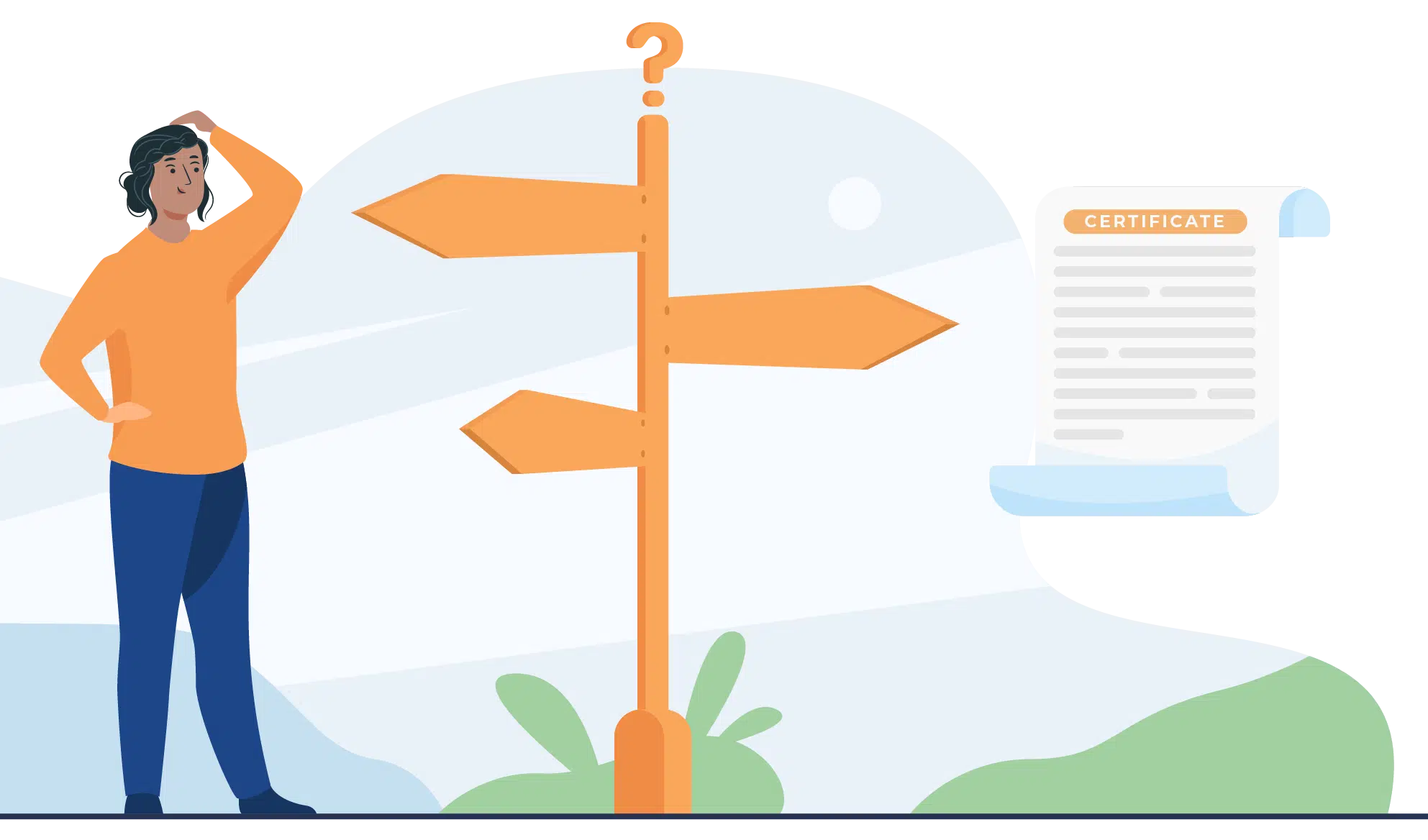
Answer These Questions
What are your personal and professional goals?
Are you considering a coaching certification to branch out into coaching new mothers? Do you perhaps want to be certified so you can add a revenue stream to your portfolio? Is the certification an attempt to start your own business?
Whatever your reason may be, unless you’re completely clear about your objectives, choosing the right certification program may be difficult.
What’s your learning style?
While the pandemic has largely confined us to virtual classes, this approach may not work for everyone.
Some people simply can’t concentrate for long hours online. If you have a similar preference, you can research mixed delivery courses that mix in-class training with online courses.
Alternatively, if you’re someone who learns better with breaks in the middle, a slow-paced course may prove to be more valuable than one that doesn’t leave much breathing space between sessions.
What skills do you already possess?
If you already have a background in coach training, you may not need to start from scratch with a foundation course.
However, if you’re completely new to the coaching world, you will benefit the most from a course that covers the basics and adds on to your knowledge from there.
Depending on where you stand from a training perspective, you can either choose a starter-level course, or opt for a specialist certification program.
Do you have a specific area of specialization you want to pursue?
Depending on your preferred area of specialization, you may need a specific type of certification.
For example, if you plan on coaching ADHD patients and their families, your training will require a stronger focus on tools and techniques pertaining to ADHD care and coaching.
On the other hand, if you’re planning on starting your career as a spiritual or wellness coach, you’d benefit greatly from developing a coaching mindset, building your coaching skills and discovering new coaching tools.
For my client Tony, for example, a course that helped him learn the nitty-gritty of sports coaching was integral to his dream of becoming a personal fitness coach. He picked a specialized certification course that came with accreditation as well as a robust curriculum that would teach him how to help people realize their full potential.
After completing his certification program earlier last year, he has gone on to land clients from all over the world who want to improve their fitness levels and get healthier. Based on what he learnt in his specialized program, he was able to come up with strategies that cater specifically to sports and performance-related coaching.
Would he have had the same training had he chosen a generic coaching certification? Probably not!
Do you wish to set up your own life coaching business?
Unfortunately, while coaching certification equips you with a long list of skills needed to be a good coach, they don’t necessarily teach you how to start and run a successful coaching business.
That’s where practical online training and webinars like the Inspirational Coaching Business Blueprint come into the picture.
No doubt, investing in an accredited certification is important. But putting in the time and effort to learn how to successfully land clients, maintain your relationship with them, and crack a successful business model are all equally important.
Are you going to pursue life coaching long-term?
I’ve said this before and I’ll say it again – life coaching is a serious undertaking.
So, before you decide on a life coaching certification, ensure that you won’t quit when the going gets tough.
Whether you choose to start part-time and ease into it, or just dive straight into life coaching as a full-time career, be sure of your availability, commitment, and goals before you sign up for a course.
Do you have the interpersonal and soft skills needed to make it as a life coach?
If you’re unable to sit and listen to someone talk about their life for long periods, or if you find it difficult to be empathetic, coaching may not be the right career for you.
Everyone likes to think that they’re capable of guiding another person, but that’s not true for most people. Before you diversify into a career as a life coach, carefully consider whether you have what it takes.
Based on your skillset, or lack thereof, you’ll be able to choose the right course for you. If you feel your interpersonal skills need to be polished, opt for a program whose curriculum includes this.
The Advantages of Life Coach Certifications
While you’ve probably heard me make the case for certifications multiple times before, I’m sure you’d like to know what else you can expect to get when you invest in one.
I understand that we tend to have a very calculated view of things, especially when we’re paying our hard-earned money.
However, the value of some things simply can’t be measured in quantifiable terms.
This is also the case with life coaching.
Don’t believe me? Here’s a list of the many advantages of life coach certifications –
- Learn coaching and mentoring skills.
This one’s quite on the nose, isn’t it? As we saw above, an accredited, intensive coaching program will equip you with the coaching, mentoring, communication, planning and skills needed to kickstart a coaching career.
- Keep up with the latest coaching trends and techniques.
With each passing year, new techniques and training crop up in the life coaching space. While not all of them will work for you, staying abreast of current trends will always help inform your coaching work and deliver results.
- Gain the confidence needed to kickstart your coaching career.
Even coaches who have a certain level of experience find that a certification adds to their confidence. Whether it’s about approaching new clients, quoting higher prices or starting out by yourself – the skills you pick up during your course will help you be more confident as you move on to the next level of your journey.
- Pursue a stable career path.
More than ever before, life coaches are in huge demand among corporates.
Since employees are feeling the pressure brought on by heavy workloads, coaches have become integral to helping people achieve work-life balance, peace, mindfulness and boost productivity.
With a certification from an accredited body, you have the opportunity to tap into these corporate clients and build a solid career in coaching.
- Get hands-on training.
When you choose a certification program that offers mentorship hours and client interactions, you get the chance to apply what you’ve studied to real-world situations. This hands-on training is immensely valuable as it can help you understand your strengths and the areas where you need to improve.
What A Coaching Certification Means to Your Clients
- It shows them you’re a professional.
In plain and simple terms, a certified coach means business.
A certification shows potential clients that the coach is trained, skilled and committed to creating a difference. As I’ve mentioned above, which certification you choose to go ahead with depends on your unique requirements.
Irrespective of which course you choose, the simple act of getting certified shows potential clients that you take your services seriously.
My friend and colleague Barbara, who has been in the business of life coaching for almost 7 years now has had an interesting experience with this. When she first started out as a life coach, she had attended a few sessions on communication skills and coaching technique, but hadn’t yet invested in a coaching certification.
This didn’t bother her individual clients, especially ones who had found her through word-of-mouth publicity and referrals. However, when she approached a small business owner looking to hire a coach for their establishment, her lack of certification was a problem.
Needless to say, Barbara took the first opportunity to get certified, and while she lost that client, she has worked with numerous other business owners since then.
- Boosts your credibility.
A coach with training is one who has officially learnt the techniques and strategies involved in creating lasting change. With a certification, you officially show the world that you’re in it for the long haul, and that you’re trained to take up the role of a coach.
An ICF Global Consumer Awareness study found that almost 83% of participants felt it was important that their coach had a certification or credential.
- Shows them that you have access to the latest tools and strategies.
Consumers know that a coach who invests in certification programs is more likely to be updated on the latest trends, tools and strategies to help them. This belief is probably why more individuals report (Source: ICF Global Consumer Awareness study) being satisfied with coaches who hold a certification or credential, as opposed to those who don’t.
Chapter 7:
Do Life Coach Certifications Prepare You To Start Your Own Business?
When it comes to life coaching, to truly feel fulfilled with it as a career, you need to give it your all.
Does this mean you can’t pursue it part-time? Absolutely not! In fact, this article will show you exactly how you can succeed if you’re pursuing a coaching business alongside a full-time job.
When I say you need to give it your all, I’m referring to being entrepreneurial in your worldview.

The Key To Unlocking Exponential Income
If you have chosen to help people by investing in a certification, you’re obviously very dedicated.
So, it only makes sense to treat your new venture as a professional endeavour i.e. treating it like a business venture.
The fact is, you need to do it to be able to coach sustainably.
And this is the key to unlocking exponential income from your coaching — to treat it as a business.
There’s 1 thing in common in all the highest-paid coaches of the world. They think like entrepreneurs and look at it as a business.
That’s exactly how they got to the level of success and fortune they are at currently.
We Start Coaching Because We Are Passionate. But The Reason Coaches Last Is They Treat It As A Business.
Throughout your journey as a coach, I strongly encourage you to put on your entrepreneurial hat.
You have to learn a lot and wear many hats.
From ideating to marketing, to selling, to delivering, and everything else in between.
Whether it’s Jay Shetty, one of the most popular (and viral) life coaches, or a business and life strategist with an enviable list of clients – they only made it big by embracing their inner entrepreneur.
Unfortunately, running a successful business is not one of the subjects covered in a coaching certification’s curriculum.
And the great thing is, you don’t need to wait to get your certification.
You can start putting in the work for making your coaching into a sustainable business right away.
You have to do it at some point anyway. Why not get a head start?
The Skills Required to Start a Coaching Business
To make sure you have what it takes to successfully run your coaching business, here are a few other skills to work on.
- Interpersonal skills.
While your certification covers coaching and mentorship skills, there are many other interpersonal skills required to successfully run a coaching business. Your prowess when it comes to time management, troubleshooting, client servicing, or even team management won’t be developed as a part of your certification course’s curriculum.
However, these skills can make or break your success as a coach, and they need to be honed through continuous practice and upskilling. Resources and programs like the Inspirational Coaching Business Blueprint can help you build these critical skills.
- Learn to pitch to, land and retain clients.
Again, this is a skill you won’t learn while pursuing a life coach certification program. To learn the tricks of the trade, and to build a huge paying-client base, you will have to invest in the right training. Experience, as always, remains paramount.
- Build your professional network.
If you choose a decent, accredited, long-term certification program, you will be given access to an alumni network or even a job/client portal. Don’t get me wrong – these can help you.
But will this be enough to sustain your career goals and aspirations?
Building your professional network and maintaining relations within it are continuous, life-long endeavours that have to go on along with everything else you do as a coach.
Unfortunately, most certifications don’t teach these skills.
- The Right Mindset
Many individuals who were successful in their jobs fail at being business owners. Why? It’s mostly because of their attitude.
Developing the right attitude is necessary for you to be a better entrepreneur. No matter how successful you were as an employee or professional, it’s time you started working toward becoming a businessperson from the inside out.
Invest your time and money in resources that help you develop this mindset. Read the right books. Network with the right people (this is your cue to restart your LinkedIn). Attend the seminar that will address your weaknesses and help you improve. Most of all, be open and ready to take on the challenges that come your way.
- Entrepreneurship Skills
Even if you don’t choose to launch your coaching business in a big way, if you want to remain profitable, entrepreneurship skills are a must.
Be it the entrepreneurial attitude, or hunger for going to the next level – without an entrepreneurial mindset, it’s virtually impossible to achieve lasting success as a coach.
Generalized v/s Specialized Life Coach Certifications
By now you’ve probably read enough to know that life coach certifications are worth the investment. You may have already started working on what type of certification you’d probably benefit from, and maybe you’re even wondering if there exists a ‘perfect’ choice for you.
When it comes to picking the ideal life coaching certification for yourself, it’s important to factor in whether you’d like to pursue a generalized or specialized course.
Generalized coaching certifications aim at teaching you the core fundamentals of the art of life coaching, whereas specialized courses dive deeper into one of many possible niches and sections within the arena of life coaching.
Let’s quickly take a look at the main benefits, disadvantages and offerings of generalized and specialized courses.
Generalized Certifications
- Advantages of Generalized Certifications
With general coaching certifications you will learn about the fundamentals of coaching and mentorship.
This makes it a perfect choice for those of you who have no background in training, coaching or counselling.
If you’re sure that you want to be a coach, but you haven’t yet figured out what kind of coach you’d like to be, a generalized certification will work for you.
- Disadvantages of Generalized Certifications
The thing about generalized certifications is that they aim at making you a Jack of all trades, but a master of none.
Undoubtedly, such courses cover a lot of ground in terms of competencies, subjects and modules. But they don’t usually teach you enough about any of them to make you an expert in any of them.
Let’s say you want to be a health coach.
Wouldn’t you rather go for a certification program that covers important topics like nutrition, exercise, mindfulness, body types, building habits etc.?
Similarly, if you want to specifically work with pet parents, you’d benefit more from specialized coaching certification, as opposed to a generic one.
Specialized Certifications
- Advantages of Specialized Certifications
When you choose a specialized certification program you take the guesswork out of the equation. Such a course will help you utilize your learning hours to develop the exact skills needed to make it as a coach in your preferred niche.
There is less focus on general, non-specific coaching topics, techniques and tools.
Instead, you’re trained to be a specialist coach with expertise in a certain area.
- Disadvantages of Specialized Certifications
What happens if you’re half-way through a specialized coaching certification program and you suddenly realize that this specialization is not right for you?
The main disadvantage of a specialized certification is that it puts limitations on what you can pursue after you’re certified.
Chapter 8:
Modes of Course Delivery
Gone are the days when you were required to attend classes at the local community college or university. Similarly, there are more options to develop a new skill apart from sitting across a tutor or professor.
The last year has also contributed to a fundamental shift in the options available to those looking to learn, upskill or start a new career.
Even if you’re living in the middle of nowhere, an island, or a city with a population of less than 1000, there are many options available to get going towards your dreams.
Let’s take a look at the various modes of course delivery available to us.

Distance Learning (Online)
An online life coach certification is a great option for many people who simply don’t have the option of choosing an in-person training schedule.
Here are a few other benefits of online certifications.
Convenience: All you need is a stable internet connection, your laptop or smartphone, and your enthusiasm! Online courses also limit the impact of geographical limitations, and open up the possibility of pursuing the most suitable course, irrespective of where you are located.
Time management: While most programs have a mix of recorded and live online sessions, there is greater scope to study according to your schedule. This makes it a great option for working professionals, stay-at-home parents, students, etc.
Improved Focus: Online learning is a unique experience as it allows you to connect with others, without stepping out of your comfort zone. Many people also believe that online courses aid them in focusing as they’re less distracted by their classmates.
Peer network: Millennials and Gen Z students are increasingly accessing courses and training online. There’s a larger number of people who choose to train online, and this just means that with a larger class size, you’ll have a larger peer network to grow with.
Cost: Since online courses require less investment in terms of overheads, they’re priced lower in comparison to offline courses. Additionally, online courses (thanks to their popularity) also have payment plan options that’ll help you break down the course fees over a period of time.
Did you know that e-learning is not a new concept we’ve just discovered? It has been around since the 1960s.
Face-to-face (Offline)
Commitment: If you struggle with discipline, especially the kind that’s needed to religiously log onto class, battle with technical difficulties, and staring at a screen, it may be difficult to keep up with an online program. With an in-person course, it’s easier to trick your brain into committing to your education.
Technical difficulties: Not everyone has the patience needed to deal with numerous technical difficulties that invariably crop up during online classes. While for tech-savvy people it may be just a source of irritation, technologically challenged individuals may struggle to complete online courses. For them, nothing can replace a good ol’ classroom environment.
The human touch: If you desire an immersive experience where all your senses are engaged in learning, an in-person course may be the right choice. Having an actual human being interact with you in real-time is not the same as staring at a screen.
Quick Learning: Have a doubt? Raise your hand and immediately get the answer for it from your teacher. With face-to-face coaching, your pace of learning is much faster since your environment is conducive to the process of learning by asking, observing, questioning, and correlating.
Mixed Delivery (Online + Offline)
It’s not always possible to find a course that’s purely offline or online. And even if you could, is that really the ideal choice? Well, it depends.
For the most part, it helps to have face-to-face sessions with mentors or clients, as you can put to practice your non-verbal techniques. However, with the pandemic situation, it may not be possible to have as many in-person sessions as you’d like. In such a scenario, you can opt for a mixed delivery program that tries to combine the best of both worlds.
In any case, depending on your individual goals, responsibilities, time availability, and other factors, you can curate a plan that mixes online and office elements.
The COVID-19 Conundrum
It’s important to mention that in many countries, mixed delivery programs have temporarily moved to online-only formats. Until the CDC decides to change the guidelines, they will continue having classes exclusively online.
If you’re starting your certification in this day and age, you have an important choice to make: wait till in-person classes are an option, or push ahead.
It’s important to remember that this is not a this-or-that situation. You can totally choose to complete an online course right now, and pursue in-person classes when they’re deemed safe again.
Alternatively, you can choose to go completely online with every aspect of your training.
This unprecedented pandemic may have turned our world topsy-turvy, but where there’s a will, there’s always a way!
Now, more than ever before, the need for coaches is growing.
As nations recover from the pandemic and its many effects, life coaching is steadily becoming a way to adapt and get back on track.
So, don’t let this act as a hurdle to your dreams.
Chapter 9:
Our Recommendations: The Best Life Coach Certifications
Although I’ve told you that only you can pick the right life coach certification for yourself, there are a few programs that take the cake!
Based on the most popular requirements among those looking to get a life coach certification, I’ve picked four of the best courses available today.
Whether you’re a beginner, or someone who knows their way around the life coaching industry, I’ve made sure to give you my recommendations on what I believe would be the right pick for you.
However, I still suggest you do your own research before you take the plunge.

Best for Beginners – CoachU’s Core Essentials Program
Many consider CoachU to be among the oldest coach training programs, and even credit it as the original life coach certification.
This course is our top pick because it introduces you to the concept of life coaching, helps you build a foundation, and allows you to discover your special niche within coaching – within only 77 coaching hours!
CoachU understands that most people pursue coaching part-time with other responsibilities, and probably just need a certification to get started. Consequently, the program includes ICF-recommended core competencies, allows for practice hours, and teaches you about coaching ethics.
The Core Essential Program covers the academic requirements for your ICF Associate Certified Coach (ACC) certification. It’s also completely virtual now, so there’s less hassle in terms of rearranging your schedule to accommodate travel time, or worrying about safety.
While CoachU allows you a time of 15 months to complete the Core Essentials Program, it can be completed in as little as 6 months to a year.
While I’m not a fan of short-term courses, for participants looking for a career change, the Core Essentials Fast Track Program may be the right fit.
Within six intensive and immersive days of training that are further supplemented by a few pre-program and post-course events, you can still get your ICF ACC certifications.
This easy-to-access, self-paced program costs around $ 3,999, with a little more investment in terms of books and other resources.
| ICF Accredited | Yes |
| Duration | 6 months – 15 months |
| Mode of Delivery | Online |
| Investment cost | $ 3,999 |
Most Advanced – Integrative Wellness Academy’s Master Life Coaching Program
If you have a life coach certification already, you need a program that helps you elevate your existing skill set a notch above. Our pick for the most advanced certification, the Master Life Coaching Program by Integrative Wellness Academy, helps you do just that!
This program helps you apply the latest, high-level, advanced coaching techniques into your practice, and can help you upskill in a way that dealing with the toughest of clients feels like a breeze.
It covers topics in areas like integrative life coaching, health and wellness coaching, spiritual coaching, family and relationship coaching, as well as career and finance coaching.
While you may only want to specialize in one of these niches, it doesn’t hurt to learn about them all.
The course also familiarizes students with techniques borrowed from Neuro-Linguistic Programming (NLP), the Emotional Clearing Method (ECM), and Cognitive Behavioral Therapy (CBT).
This course will set you back around by close to $2,500. And it’s not ICF-accredited. Whaaaaaat?
Yes, you heard it right. I’ve discussed the benefits of an ICF accreditation at length, but I still think that this course is worth it even if it doesn’t offer the ICF approval.
Why? Well, since this is an advanced degree, you may already have completed ICF-accredited foundation programs.
So, as you advance ahead, choosing a program that’s more academically oriented makes better professional and fiscal sense.
After completing this Integrative Wellness Academy program, you will be awarded a Master Practitioner of Integrative Life Coaching Certification (MPILC) degree which is at par with a university program.
| ICF Accredited | No |
| Duration | Flexible (9 months minimum) |
| Mode of Delivery | Online |
| Investment cost | $2,500 |
One of my colleagues, Jennifer, already had around four and a half years of experience as a successful life coach. While her certification was ICF-approved, it wasn’t as intensive or all-encompassing as she would have liked it to be.
Recently, she felt like she lacked certain skills that prevented her from landing the kind of high-paying clients she aspired to work with. After some deliberation, she decided to pursue Integrative Wellness Academy’s Master Life Coaching Program, to take her knowledge and skills to the next level.
Most Value for Money – Certified Life Coach Institute’s Life Coach Certification
Certified Life Coach Institute’s certification is our top pick for most value for money offered and also for the quickest program.
This three-day certification course costs around $995 and takes only around 33 hours to complete.
In pre-corona times, you could choose from online and face-to-face delivery, but now only the online option is available.
Either way, the 33 hours are spread across three intensive days of training.
Like CoachU’s program, even this certification teaches you ICF-recommended Core Competencies related to coaching techniques, ethics, standards, and real-life practice.
The robust curriculum covered over 3 days will also familiarize you with coaching strategies and client management techniques, albeit only on the surface.
With that being said, this course does give you the status of an ICF certified professional life coach, and allows you to access an alumni network of over 9000 coaches.
If you simply don’t have the time to pursue a long-term accredited course, choosing this program from the Certified Life Coach Institute is still better than choosing an unaccredited course.
| ICF Accredited | Yes |
| Duration | 33 hours (3 days) |
| Mode of Delivery | Online |
| Investment cost | $995 |
Most Intensive – The Institute of Life Coach Training’s Professional Certified Coach (PCC) Program
The most intensive certification program on our recommendation list, the Institute of Life Coach Training (ILCT) offers you a Professional Certified Coach (PCC) that will help you continue building your knowledge.
It’s designed a lot like a college program in the sense that it requires you to attend specific classes at specific times to earn credits.
To top it off, to pass each of these classes you will have to maintain an attendance of at least 70% or higher.
Needless to say, this course demands your full attention and time commitment, but it also offers you the advancement you need to move on to bigger things in your coaching career.
Since this program is so intensive and requires so much coursework on the student’s part, it makes sense to think of it as an unofficial undergraduate or associate’s degree.
It takes anywhere between 18 to 24 months to complete this intensive PCC program that costs around $7,700.
Students get 80 hours of structured learning that aims at elevating their coaching skills, with an additional 30 hours of elective courses.
You can pick from a range of electives and pursue ones that are aligned to your goals.
Another 20 hours of mentorship training and practice add to a total of 130 hours that are needed to complete this course.
Students also have to complete two essays and give an oral exam with ILCT to apply for ICF accreditation on this PCC program.
| ICF Accredited | Yes |
| Duration | 18 months – 24 months |
| Mode of Delivery | Online |
| Investment cost | $7,700 |
Chapter 10:
How To Succeed in the Real World After Your Life Coaching Certification Ends
Once you get certified, your journey has just begun.
From that point on, you have the license to take over the world with your unique brand of coaching. It’s your time to shine and help others find the light within themselves.
If you’re a business coach, it’s time to help the profit graph soar. For all the health coaches, it’s time to find clients who need help finding the path towards lifelong fitness.
However, there are a few things to consider as you aim at finding real-world success.

Putting your Skills into Practical Use
As you take on your first few clients, you may face challenges in translating your theoretical knowledge to the practical scenario. It’s completely natural. There will undoubtedly be a few hiccups on the way. With that being said, be patient and trust the process. Practice your skills and keep abreast of the latest developments in your niche.
Wondering if you can manage coaching as a part-time business, alongside your day job? Read this article to know how you can do it all!
Kickstarting your Life Coaching Business
Polishing your entrepreneurial skills and developing a business perspective will go a long way in helping your brand succeed.
Follow other coaches and experts with thriving coaching businesses and see what they’ve done right. Wherever possible, learn from their mistakes. Lastly, be resilient because no matter how badly you want it, building a successful business won’t happen overnight.
If you’re looking for actionable tips on starting a successful online coaching business, this article is perfect for you.
Landing Clients
This is a big one! No business can thrive without a healthy mix of clients. When you start out, you may have trouble with landing clients, and that’s completely natural.
That’s why I highly recommend reaching out to resources like the Inspirational Coaching Business Blueprint webinar. First off – it’s free. This intensive workshop will teach you how to land 4-5 high-ticket clients per month, and make the transition to coaching full-time.
Marketing yourself
In today’s increasingly digitized world, marketing yourself has never been more important.
Offline marketing efforts like sending out mailers/business cards, pitching to clients in your local community, and reaching out to influencers to promote your business are still important.
Similarly, marketing yourself on online mediums is just as important. However, successfully marketing yourself isn’t about cliched social media posts anymore.
Blogging, SEO, and content marketing are the way to go. However, it takes some practice and a little bit of trial-and-error to get it right. You’ll also benefit from a robust email marketing plan that targets the right audiences and engages them.
Learn how you can get a consistent stream of high-paying clients with the LaunchPad program designed especially for aspiring life coaches.
Continuous Upskilling
Every few months there are new developments in life coaching. After all, it is a dynamic field.
To make sure your knowledge isn’t dated or obsolete, it’s best to continuously invest in upskilling.
If you’ve completed a foundation certification course, go for the next level when you can.
Read those recommended books, attend the important seminars that can help you grow, and start networking with the right people.
Additional Skills To Develop For a Successful Life Coaching Career
As I’ve mentioned earlier, succeeding as a life coach depends heavily on skills that you don’t necessarily learn in the classroom.
Apart from being a pro at coaching-specific techniques and skills, you will also have to develop many soft skills that will help you in the long run. These include –
- Empathy
Let’s say you’re talking to a life coach about your most pressing troubles. They listen with rapt attention, but they’re condescending, or worse, apathetic. They just don’t care that much, or they trivialize your concerns. Would you choose to continue working with them? Probably not.
Many coaches step into the coaching industry because they feel an inclination towards helping people in one way or another.
Be it your body language, verbal communication or ability to connect with your clients and offer viable solutions – empathy forms the basis for change.
A good coach can seamlessly make their client feel understood, heard and validated. Without empathy, you won’t be able to remain objective, non-judgemental and helpful.
- Listening Skills
A good coach listens to their client attentively and can encourage them to be more open by showing that they care. By actively listening to your clients, you commit your full attention to absorbing the information you receive, and it also helps in getting a clear picture of their situation.
Consequently, you will be able to formulate solutions based on what you heard.
- Logical Thinking
Your certification will equip you with coaching-specific knowledge, but when you work with real-life clients, a logical thought process will help you the most. Once you understand your client’s needs, a logical thought process helps you translate your theoretical knowledge into real-world solutions.
If you want to help people transform their lives, building your logical thinking skills will aid you tremendously.
- Asking the Right Questions
Your clients may or may not willingly offer up information related to their challenges or situations.
It’s up to you to weedle out the information from them. Sometimes, you will also be dealing with clients who need help in digging deeper into situations.
In all these scenarios, asking the right questions speeds up the coaching process. Without the ability to frame questions correctly, you may end up sounding insensitive or rude.
- Rational and Calm Demeanour
Inevitably, the coaching process can cause intense emotional responses. As your clients break down their challenges, they may become agitated, nervous, sad, upset or even sentimental. Again, as an objective resource, your role requires you to remain rational and calm while dealing with any upheaval.
- People Skills
Life coaches deal almost exclusively with people, whether online or offline.
This requires them to have impeccable people skills in every imaginable capacity. Be it the skills related to making someone else feel comfortable, or those needed to console someone who is feeling low – keep working on your people skills, and you’ll be able to make a real difference.
- Building Rapport
It’s necessary for life coaches to know how to put someone at ease. Since people open up to you about their deepest fears, desires and goals, they need to be able to trust you. Additionally, with a healthy rapport between the coach and the client, results are experienced faster.
- Entrepreneurship Skills
Most coaches have their own business. It could be part-time or you could be a full-time business owner. In any case, you’ll have to polish your entrepreneurial skills to ensure that your business remains profitable, grows and signs new clients.
Chapter 11:
The Return on Investment (ROI) of Life Coach Certifications
I’ve said this before and I’ll say it again, not all returns can be measured.
With that being said, many indicators of success like your client list, annual income, charges per hour etc. are totally measurable (and they should be).
But when you look at the returns of a life coach certification, you need to look not only at the short-term gains, but also the long-term rewards you will reap.
Let’s take a look at them in-depth.

Measurable Returns
This study found that when follow-up coaching was combined with a supervisor-led training program, productivity shot up by a whooping 88%. The same study found that only training programs improved productivity by a mere 22.4%.
In simple words, the ROI of coaching was significant as it increased productivity by 300% as compared to supervisor-led training programs.
As far as earning potential goes, a 2020 ICF study found that on average, a life coach makes just over $47,100 annually. The highest incomes were reported by respondents from North America, Oceania and Western Europe. If you compare this figure to the cost of the average life coaching certification program, you’ll see that the returns are at par (or even better) compared to your investment.
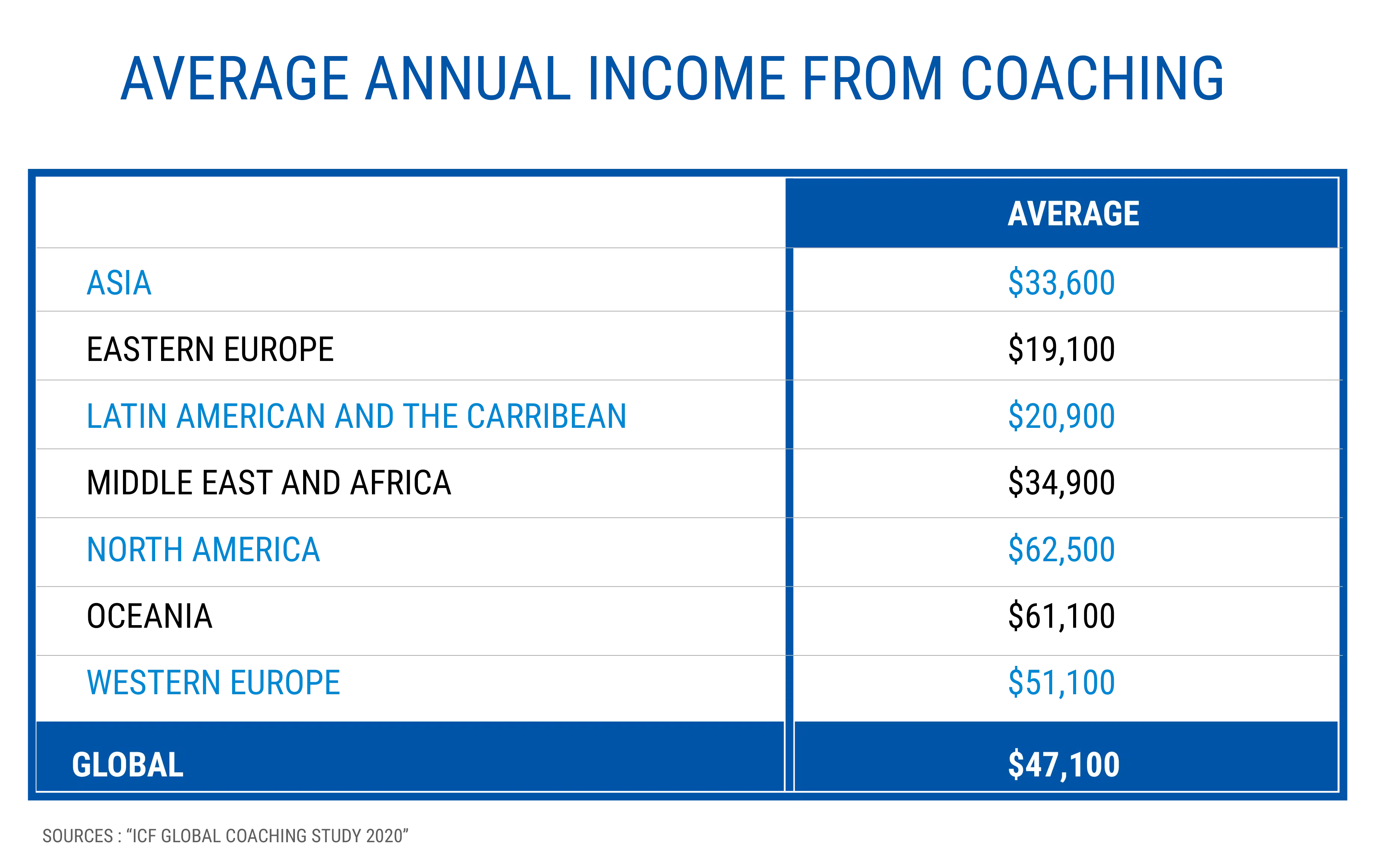
Another study conducted to measure the ROI of coaching investments and its business impact found that businesses estimate returns of $100,000 to $1 million on executive coaching investments.
Immeasurable Returns
Not all returns can be measured, unfortunately.
But there’s always scope to look for the intangible benefits of getting certified.
You gain more credibility, clients are more likely to trust you, and you’re more experienced in coaching techniques.
That’s what one of my clients, Belinda, discovered first-hand. While certification had helped this mother-of-two, former-marketing consultant start her coaching business by offering her the credibility she needed, it also filled her with a sense of confidence that translated into her booking more coaching appointments after her program ended.
Many certified coaches also feel more confident after their certification program, and this translates to business growth in most cases.
Maintaining your Life Coach Certification and Skills
- CEU and CPD Credits
In some industries (especially corportes) coaches are required to earn CEU (Continuing Education Unit) or CPD (Continuing Professional Development) credits to renew licenses.
While you don’t need these to keep your coaching business running, if you choose to take up clients from large corporate organizations, or in regulated industries, you may have to spring for CEU and CPD credits.
- Continuous Upskilling
By now you know that a coach is only as good as the continuous training they invest in. This is why you shouldn’t skimp on investing in training sessions, webinars, panel discussions or other resources that help you upskill.
- Reading
This survey found that adults who read as little as 30 minutes a week were up to 20% more likely to feel satisfied with their lives.
While this statistic refers to generalized reading, the benefits translate even to reading for professional growth.
By investing a little time every day reading industry-specific guides or books, you’ll be at the top of your game.
If books aren’t your jam, follow blogs and social pages of reputed coaching training institutes, fellow coaches, industry experts, motivational speakers, successful entrepreneurs, businesses etc.
Chapter 12:
Quick Checklist Before You Sign Up for a Life Coach Certification
Look at you! At the start of this article, you may not have known a lot about certifications, but now you’re quite the pro!
You know all about the different accreditations, their pros (and cons), and you also know what to look for when zeroing down on the right course.
By now you know enough to make a decision about your ideal life coaching certifications.
Before you take the plunge, re-check your course against the following parameters to ensure you make the right choice. This checklist aims at helping you put into words your reality, expectations, and goals.
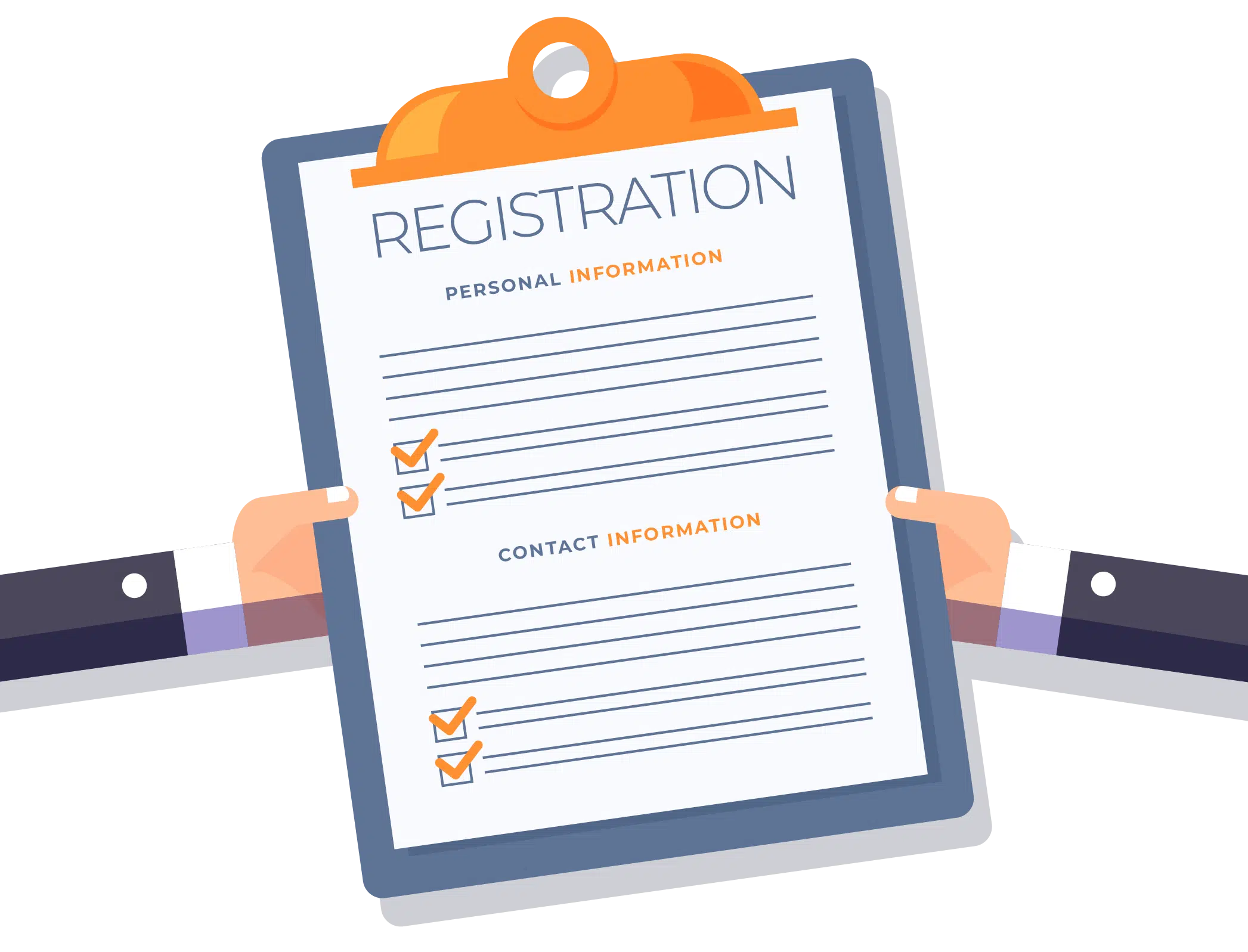
Budget
Do you have a certain budget set aside for starting your own life coaching business? Make sure you spread it out in a way that it covers all your start-up costs. This includes your course fees, of course.
But apart from that, what about costs associated with ancillary training? Before you sign up for your course, take into account all the expenses and make sure your budget covers it all. If not, you can always choose to go with a low-budget, short-term course for now.
When you do have the money, you could opt for an accredited course.
Mode of Delivery
Simply can’t do the online thing no matter how hard you try? It may be wise to wait till in-person classes start again. That’s certainly better than signing up for a course you can’t keep up with, (or worse) one you despise.
If you have the option of in-person training, it may cost more. Or it may require a stronger commitment on your part. Be prepared to give it your all, irrespective of which mode of delivery you choose.
Accreditation Status
While it has a long list of benefits, it may just not matter to you. Be honest about why (or why not) you’re choosing an accredited or unaccredited course.
If it’s just because of someone’s recommendation, rumours, or misinformation – do your research. Only when you’re crystal-clear about your needs should you sign up for a course.
Time Commitment
Do you have the time to attend all your classes? That’s the first question. If you answered ‘yes’, awesome! But remember you’ll also need to devote time to assignments, home-work and other research.
If you want to start a business immediately after your course ends, you’ll need time to prepare for that as well. Are you available to truly take on the responsibility?
Professional Goals
This is the big one! Unless you have a clear idea on what you’ll do after you have your certification, you won’t make the right choice.
To make sure you choose a course that’s right for you, you have to be very clear on your professional goals.
Are you going to continue coaching part-time? You may not need(or be able to make the time for) an intensive course. Do you want to start a life coaching business? You may need an accredited (niche-specific) course.
Chapter 13:
List of Resources for Those Who Don’t Want a Life Coach Certification
We’ve spoken about all the possible benefits, pros, cons, points to consider, and other relevant topics when it comes to picking the right coaching certification.
However, it’s highly possible that even after it all, you’re still not interested in pursuing one.
Let’s briefly take a look at the important things if you are in this situation.

Reasons People Choose To Not Get Certified
Sometimes, owing to a wide variety of reasons, you may just not choose to go ahead with a certification.
Perhaps you’re still unsure of your time commitment. Maybe you feel you would do better studying straight from a university.
Perhaps there’s a serious cash flow shortage in your household, and you need to save up for a year before you can think about certification.
Whatever your reasons may be, they’re still valid.
Here are a few other reasons why life coaching candidates don’t opt for certifications.
- It Doesn’t Seem Necessary
For some people who wish to become coaches in a part-time capacity, either to help only a few people or to work with certain underprivileged communities, a certification may just not be necessary.
- Employers May Not Care
While most corporate clients will ask for proof of certification before hiring coaches, if you work exclusively with small business owners, unregulated industries, or with organizations who have flexible rules when it comes to certifications, you may simply not need one.
If at the end of this article, you feel that you don’t need a life coach certification, don’t worry. It’s not like there are no alternatives to learn about life coaching.
Here are some resources that can help you.
Books to Read
Here are some books written by experts in the fields of training, coaching, mentorship, business, psychology etc. These titles have helped many individuals transform their lives, build new habits, and develop the right mindset for success.
- Maximum Achievement – Brian Tracy
- The Subtle Art of Not Giving a F*ck – Mark Manson
- FYI: For Your Improvement, A Guide for Development and Coaching – Michael M. Lombardo and Robert W. Eichinger
- The Power of Habit: Why We Do What We Do in Life and Business – Charles Duhigg
- Unlocking Potential: 7 Coaching Skills That Transform Individuals, Teams, and Organizations by Michael Simpso
- Conscious Coaching: The Art and Science of Building Buy-In by Brett Bartholomew
- The Coaching Habit: Say Less, Ask More & Change the Way You Lead Forever by Michael Bungay Stanier
- Coaching for Performance: GROWing Human Potential and Purpose – the Principles and Practice of Coaching and Leadership by John Whitmore
- Agile Coaching by Rachel Davies, Liz Sedley
- The Life Coaching Handbook: Everything You Need to be an effective life coach – Curly Martin
- Feel the Fear and Do It Anyway: How to Turn Your Fear and Indecision into Confidence and Action – Susan Jeffers
Additional Resources and Blogs
Here are some blogs and resources to help you stay in touch with the world of life coaching, growing your business, and developing the right mindset to be a successful coach.
Get you industry news straight from the horse’s mouth! Additionally ICF’s social media platforms regularly feature upcoming and established coaches, who you could learn a lot from.
They also regularly publish reports and studies about the life coaching industry that can help you in more ways than one.
One of the most extensive blogs on life coaching, we also offer a highly-rated free course that teaches you how to get clients for your coaching business.
Since most coaches don’t have expertise needed to run a business, sell, market themselves, create engaging content etc., this blog is highly recommended for those who need to learn these skills.
- Courses
To help you land high-paying clients, maintain great relations with them, and continue growing your expertise, I recommend the LaunchPad course. It has specific techniques for landing your dream clients with relevant outreach activities.
If you would like, you can also invest in a Cousera course like this one that aims at helping you build resilience. This is an important skill in today’s uncertain age and could potentially help you build skills for long-term success.
Conclusion
Congratulations!
You’ve made it to the end of this guide, and now you’re equipped with all the information you need to pick the right life coaching certification (or not) for yourself.
Before you choose a course, take into consideration the points I’ve mentioned above.
Answer the questions honestly, as it’ll help you determine the best course of action.
We’re only as successful as we allow ourselves to be brave.
So, I encourage you to be brave and start your own journey towards success and fulfilment.
Which course do you think you’ll choose?
Are you going to pick a specialized course or will you go ahead with a general curriculum?
Which part of this guide helped you the most?
Are you still left with doubts or unanswered questions? Have I, perhaps, missed out on sharing something important?
Let me know in the comments.
Frequently Asked Questions (FAQs)
What certifications does a life coach need?
Working as a life coach does not technically necessitate obtaining a life coach certification. Unlike becoming a psychologist or a medical practitioner, which requires years of intensive training before you can practise, being a life coach does not require years of intensive instruction. However, according to the ICF report, 89 percent of coach practitioners obtain training from a professional coaching organisation that has been accredited.
What is the most recognized coaching certification?
The standard is the International Coach Federation (ICF). There are other life coaching organisations that provide their own certificates, but most people in the business consider the International Coach Federation (ICF) to be the best.

Download a FREE PDF version of this guide…
PDF version contains all of the content and resources found in the above guide.
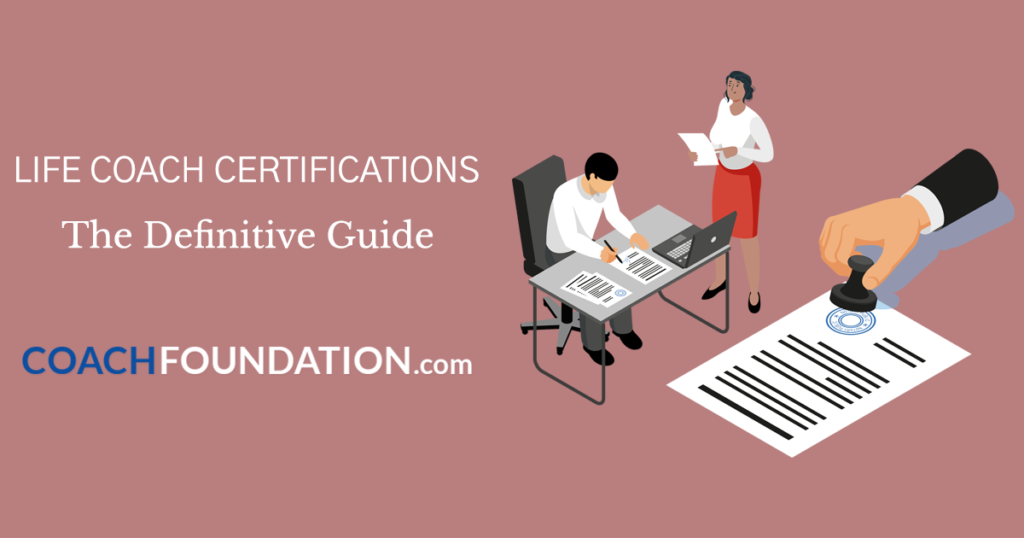

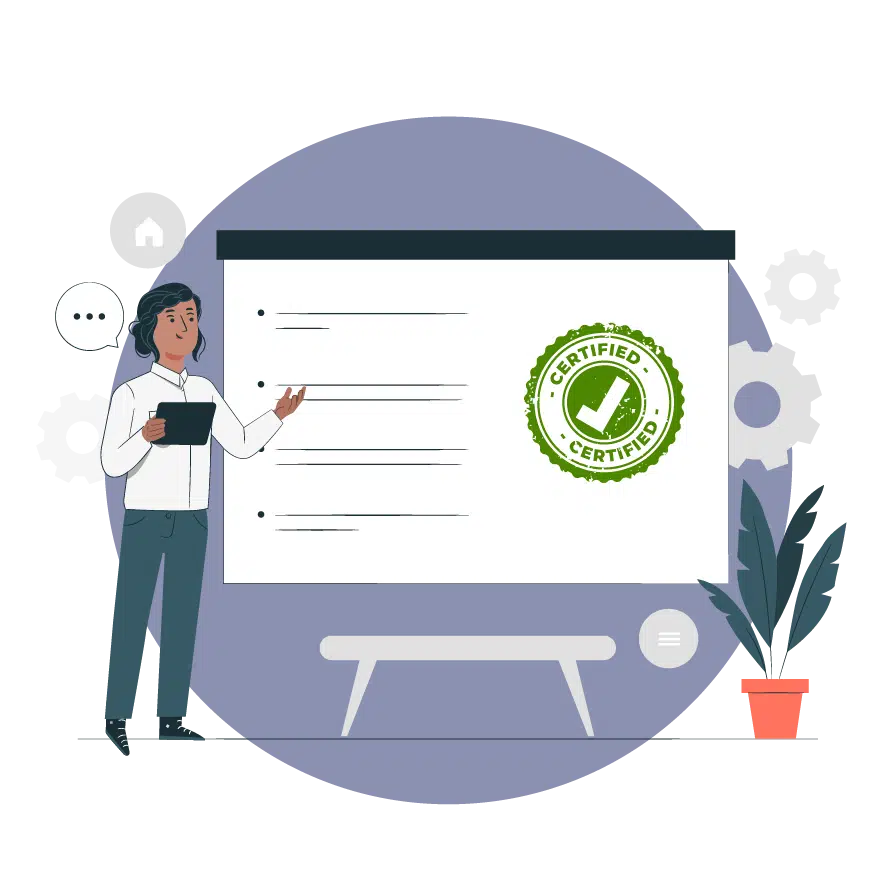
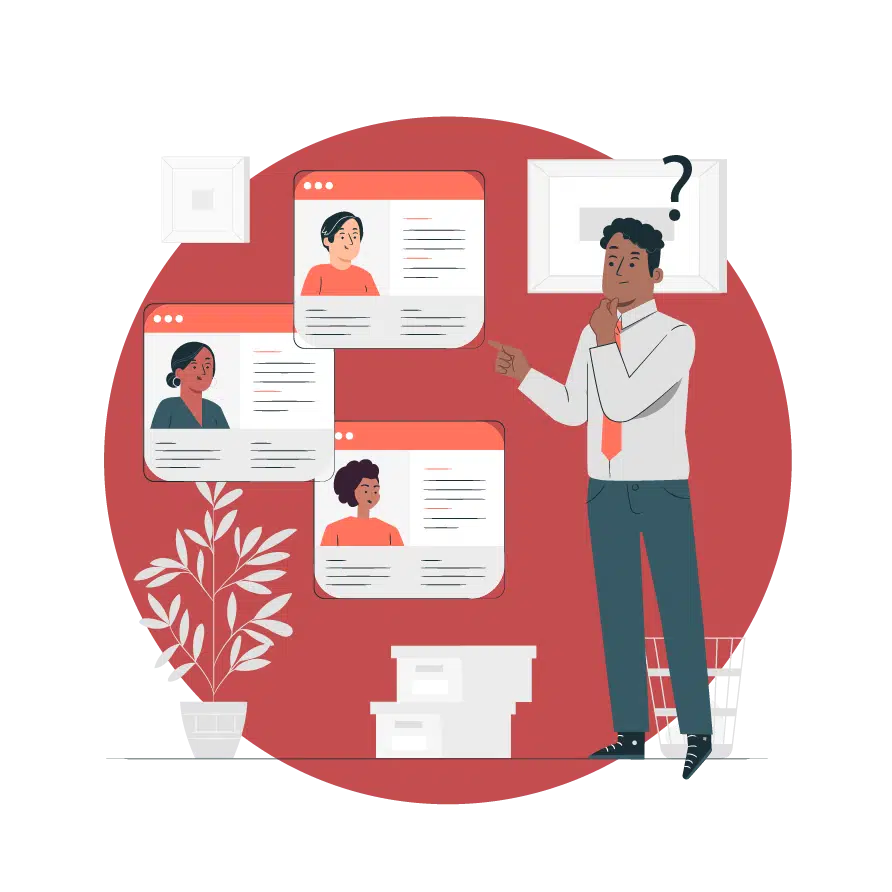


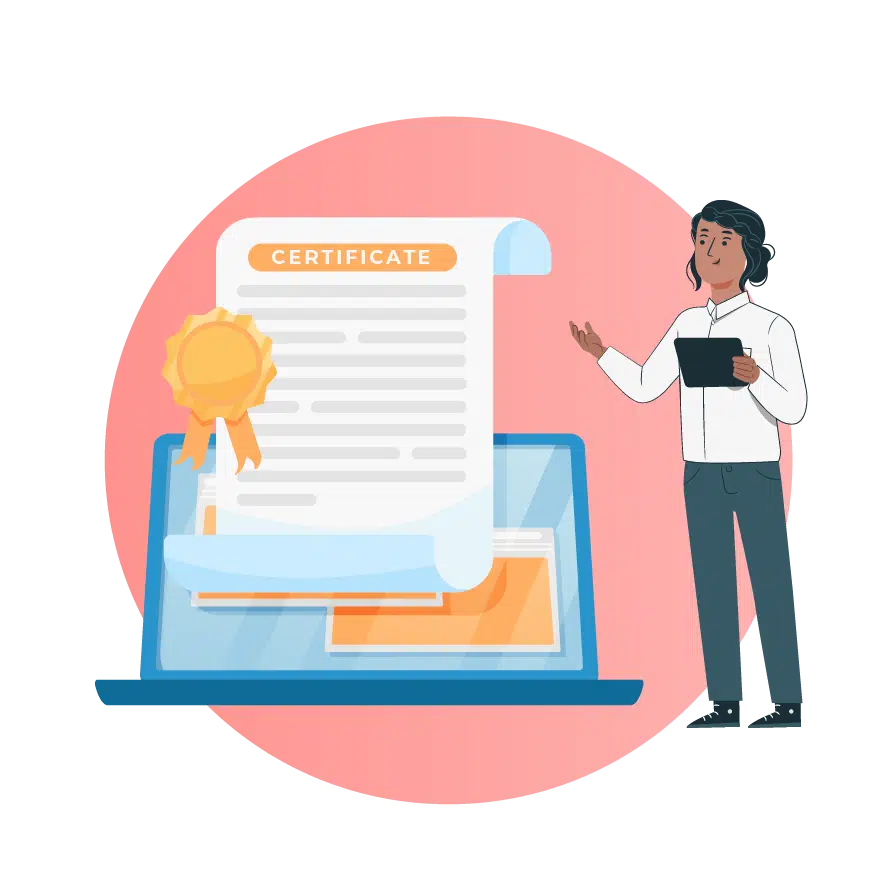


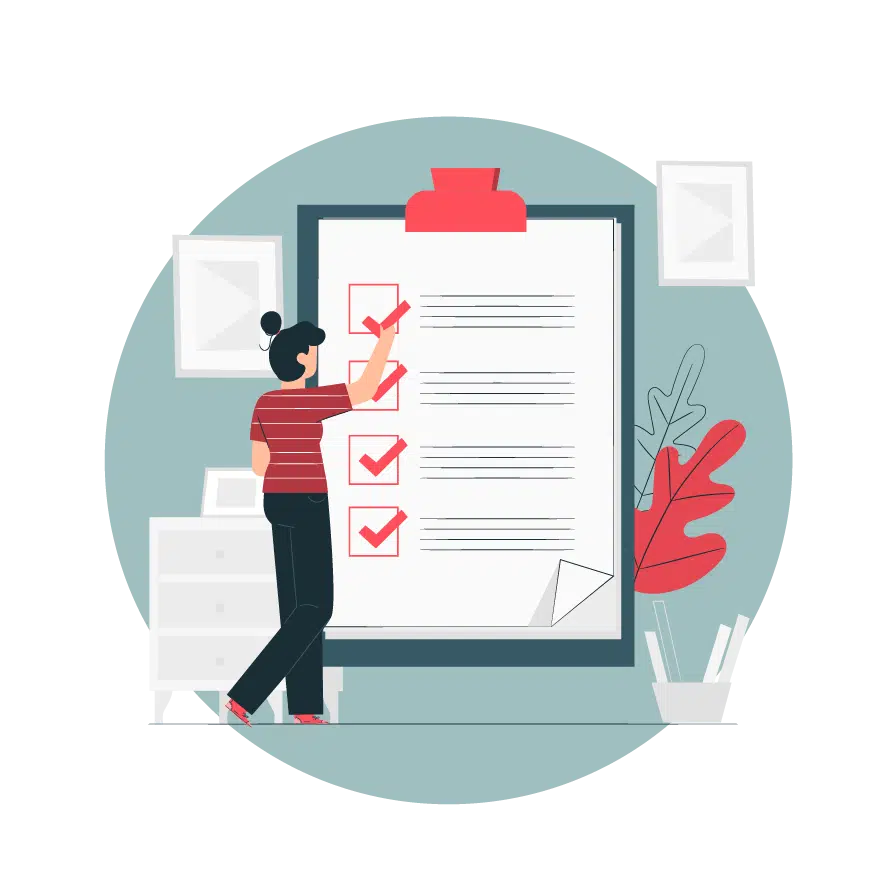
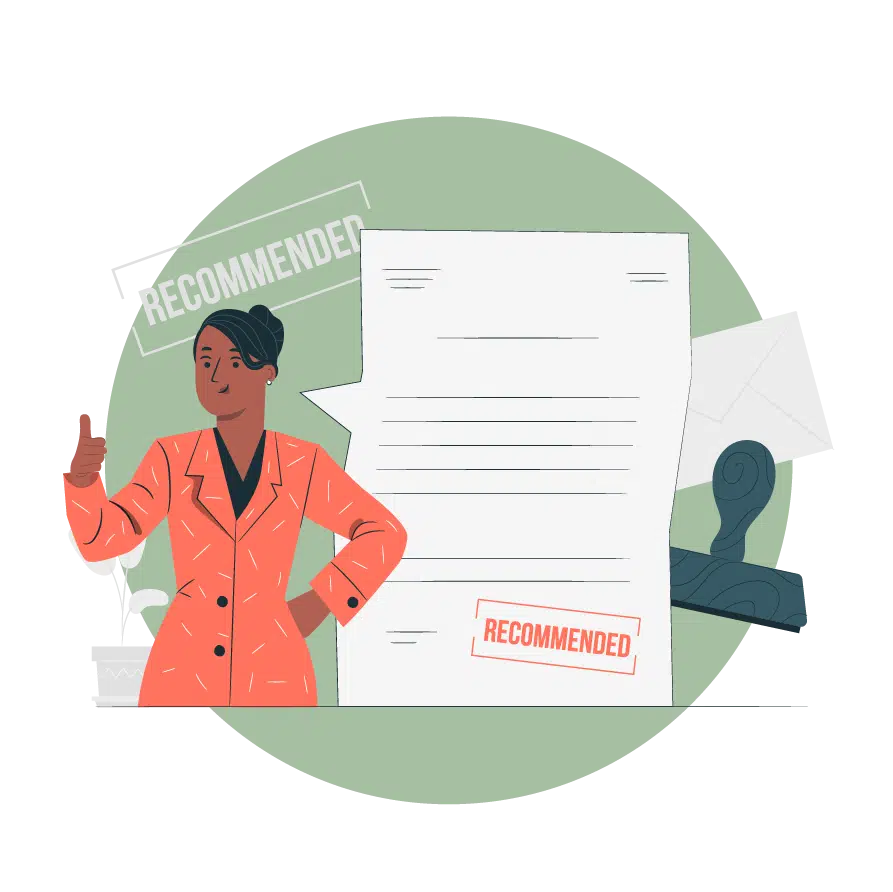



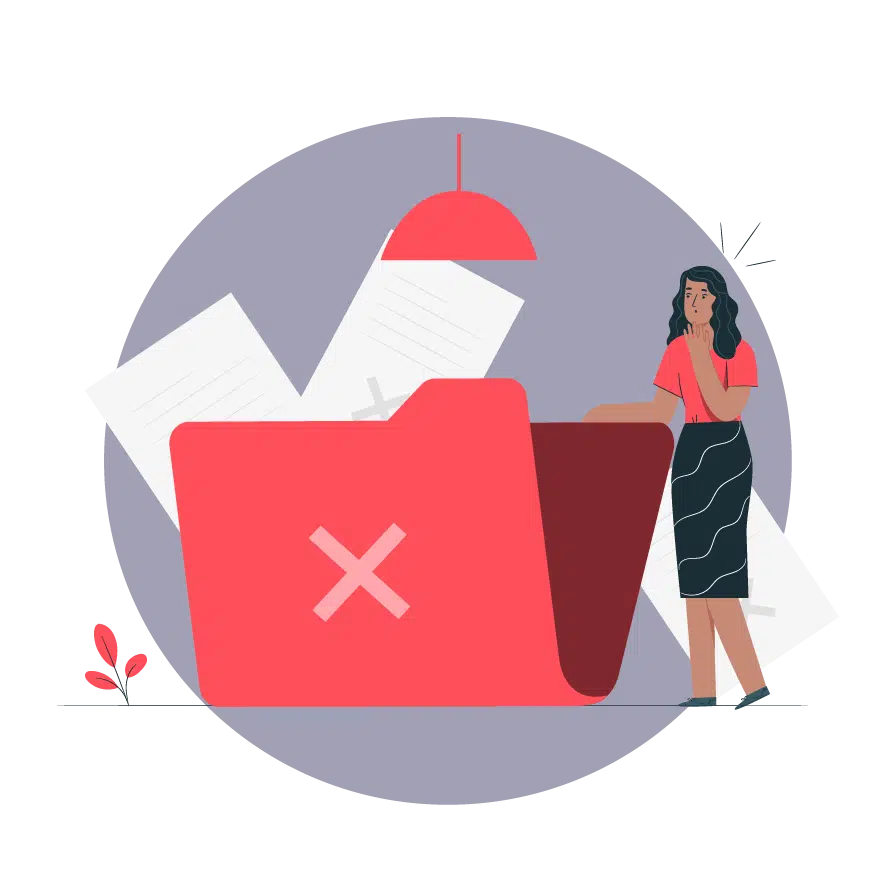
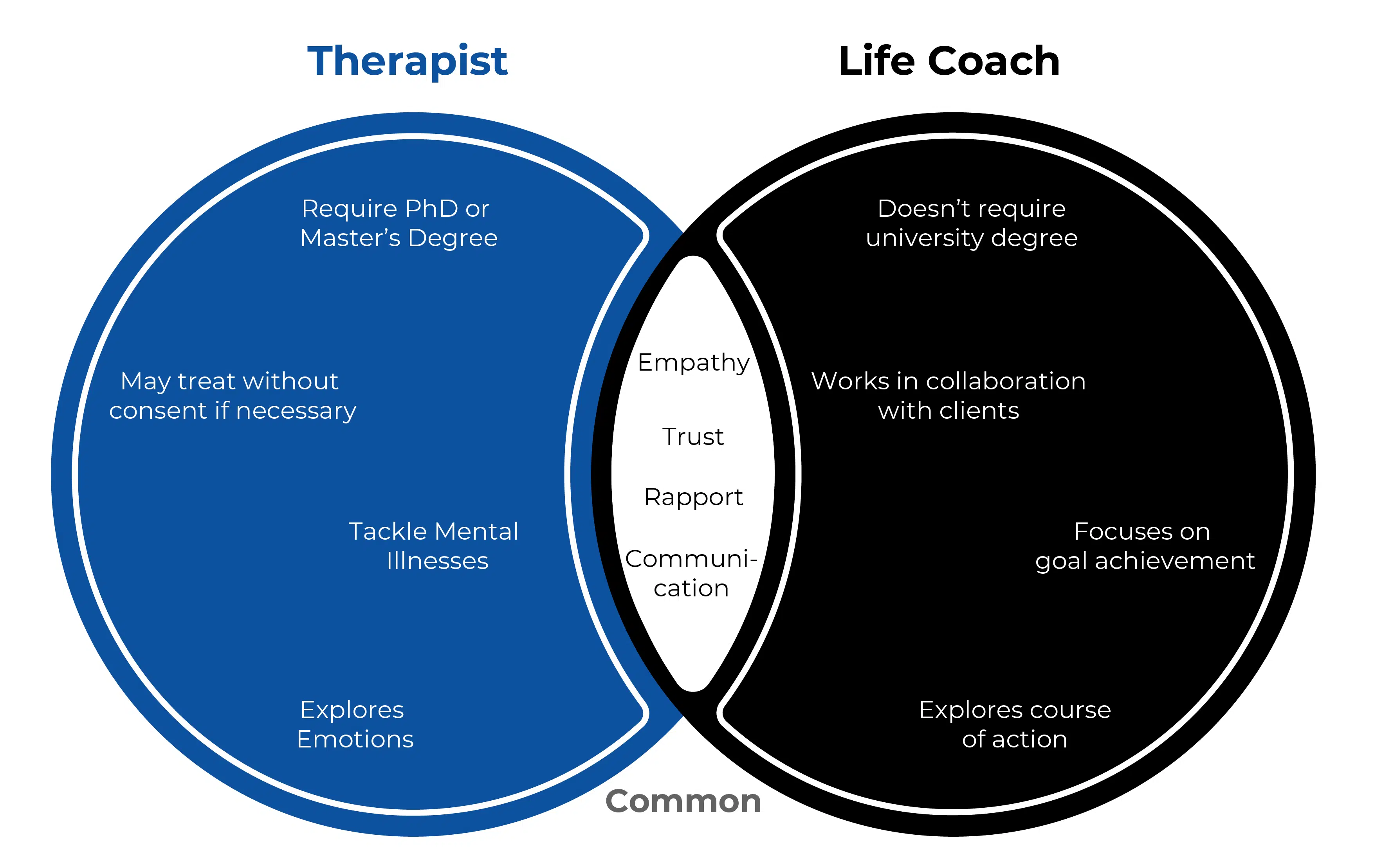
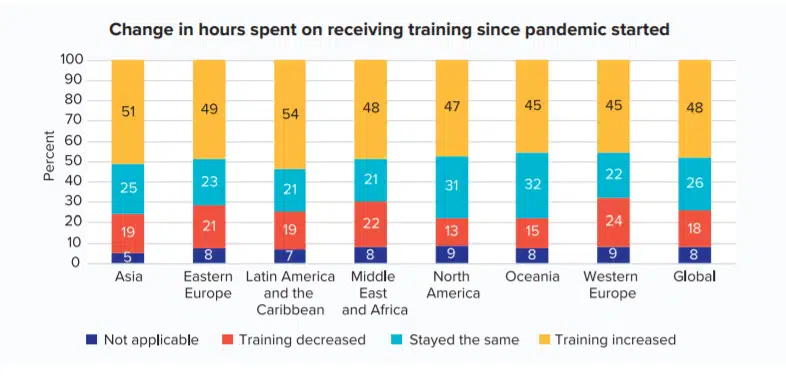
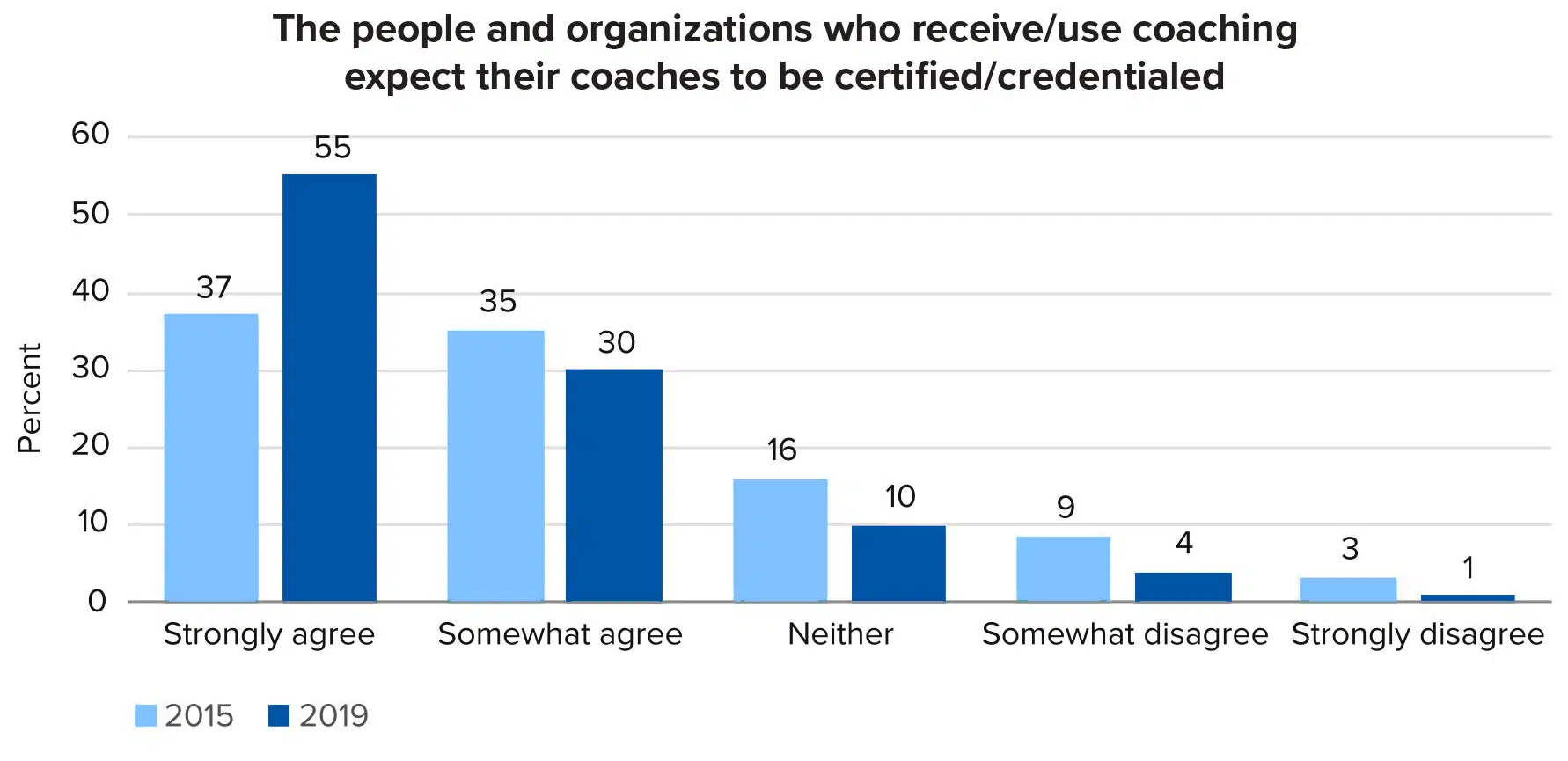
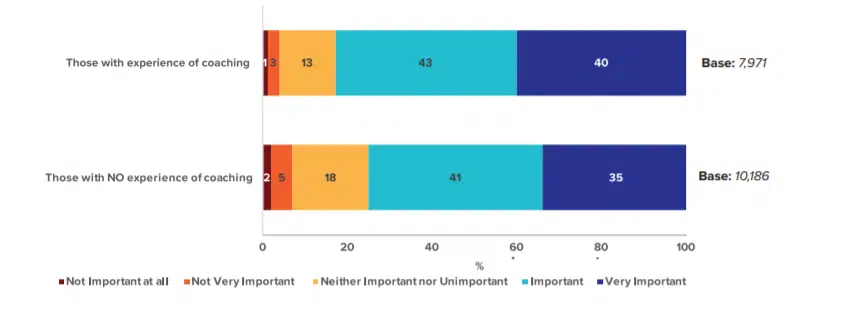

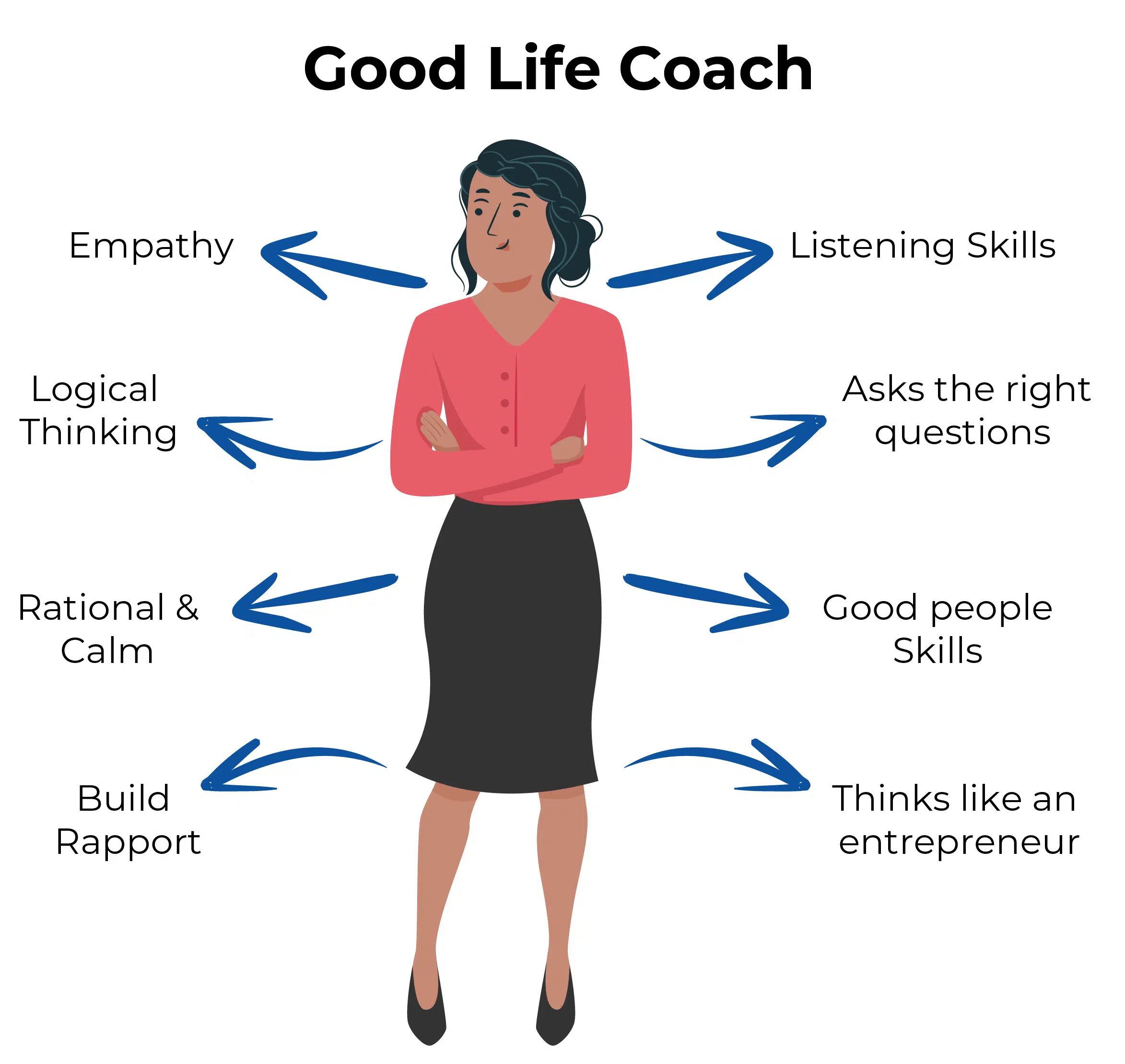





This post is a gem. Thank you Sai. I was looking for some concrete information on certifications and this post is just that and so much more. This is a resource I can keep coming back to for more information.
I stumbled upon your blogpost while looking for help regarding certifications, and here it is! This article solves all of my doubts and now I am so much more confident starting off as new coach. Eternally grateful, Sai.
What a well written article!
This has given me a sense of direction. Love how you have simplified it all. Thank you!
This is the actual ‘definitive- guide’. I am in the process of getting my certification and I can literally follow your steps here. So well laid- out, no more confusion. Thank you for the help!
Ah, I wish I had found this sooner, would’ve made life so much easier. Just got certified and I’m so excited to get on this journey.
I just got certified as an ACC, how long should I wait before I can do my PCC?
There is so much out there on certifications, but to find all of it in one neatly packed guide is a blessing. Saves on so much precious time. Appreciate that!
You’re right! Corporates do require certifications.
The game changed entirely for me as a coach as soon I landed my first accreditation. It works, get certified.
The recommendations you gave are so helpful. I had no idea there were even so many options. Genius, Sai.
Nobody guides you through what to do after your certification. I’m so glad you highlighted that point.
A very insightful article, thank you.
I am working as a Life coach for a couple of years now and sitting on the edge for certification. Reading this article may have just tipped me towards a direction, thank you. Looking forward to reading more.
Thank you for all the effort you put into writing these articles, Sai. Informative and well-structured.
I absolutely enjoyed reading this blogpost. It’s perfect. Thank you!
Going through the guide did actually help me narrow down my options for accreditation. Thank you for all the resources as well.
I’m glad I came across this article. It’s been so helpful. Thank you, Sai.
This blog was actually shared with me by a friend and it is just what I needed at this point of time. Had to drop in here to appreciate all the work you put in. Thanks, man!
Hey, the statistics you mention in this article are eye-opening. I was clueless about these facts, now I can totally use it to my advantage! Keep doing a great job!
This is by far the most resourceful article I have come across. A one-stop-shop for all coaches. Amazing!
This blogpost is a must read for all aspiring coaches out there! I’m going to keep coming back for more. Good luck, Sai!
I’ve been a coach since 2018 and the pandemic changed everything for me. I appreciate you compiling all the information about online courses for upskilling (and so much more). Worth a try for sure!
It was so much fun reading through this article. Quite informative. Thanks!